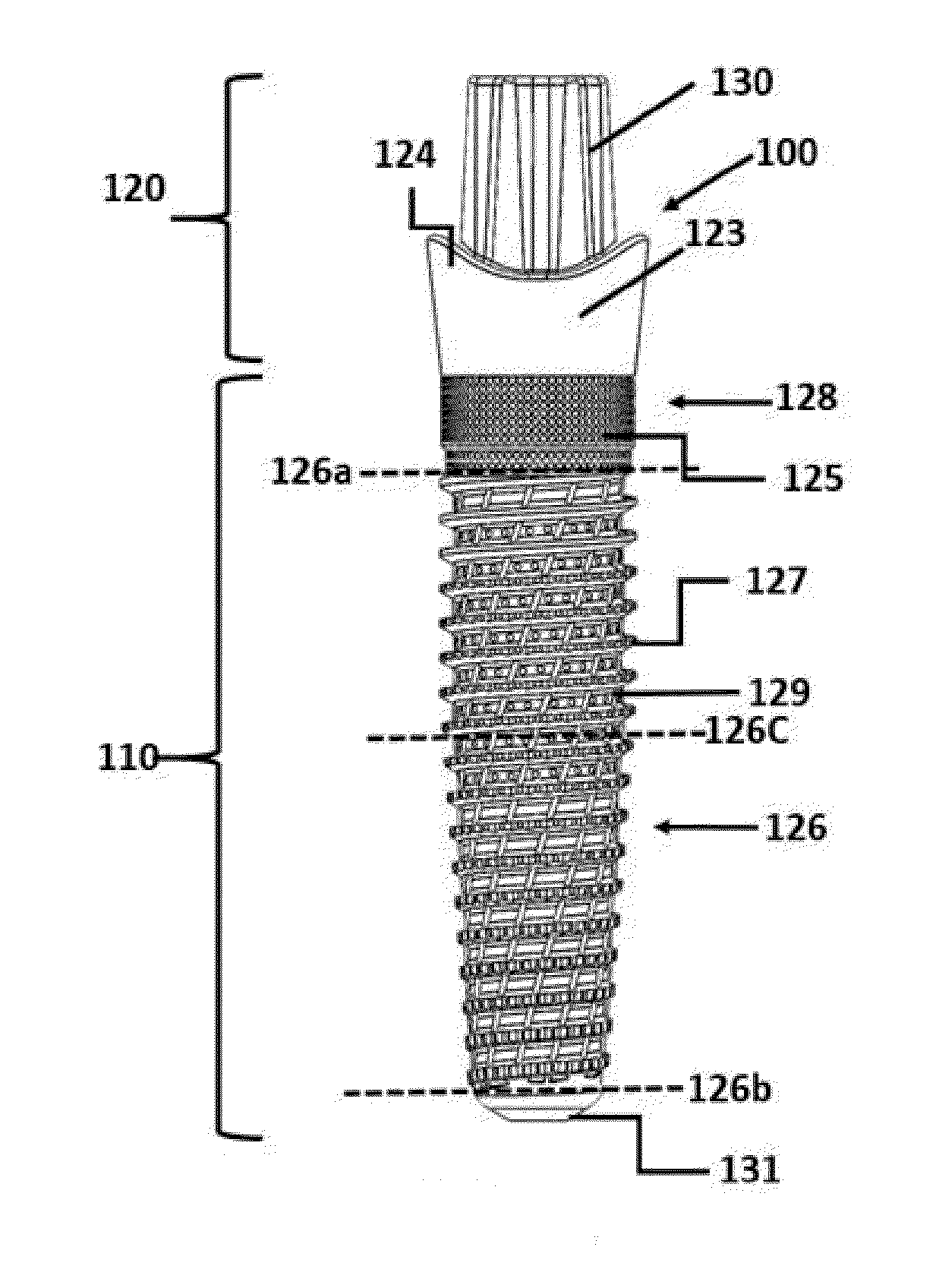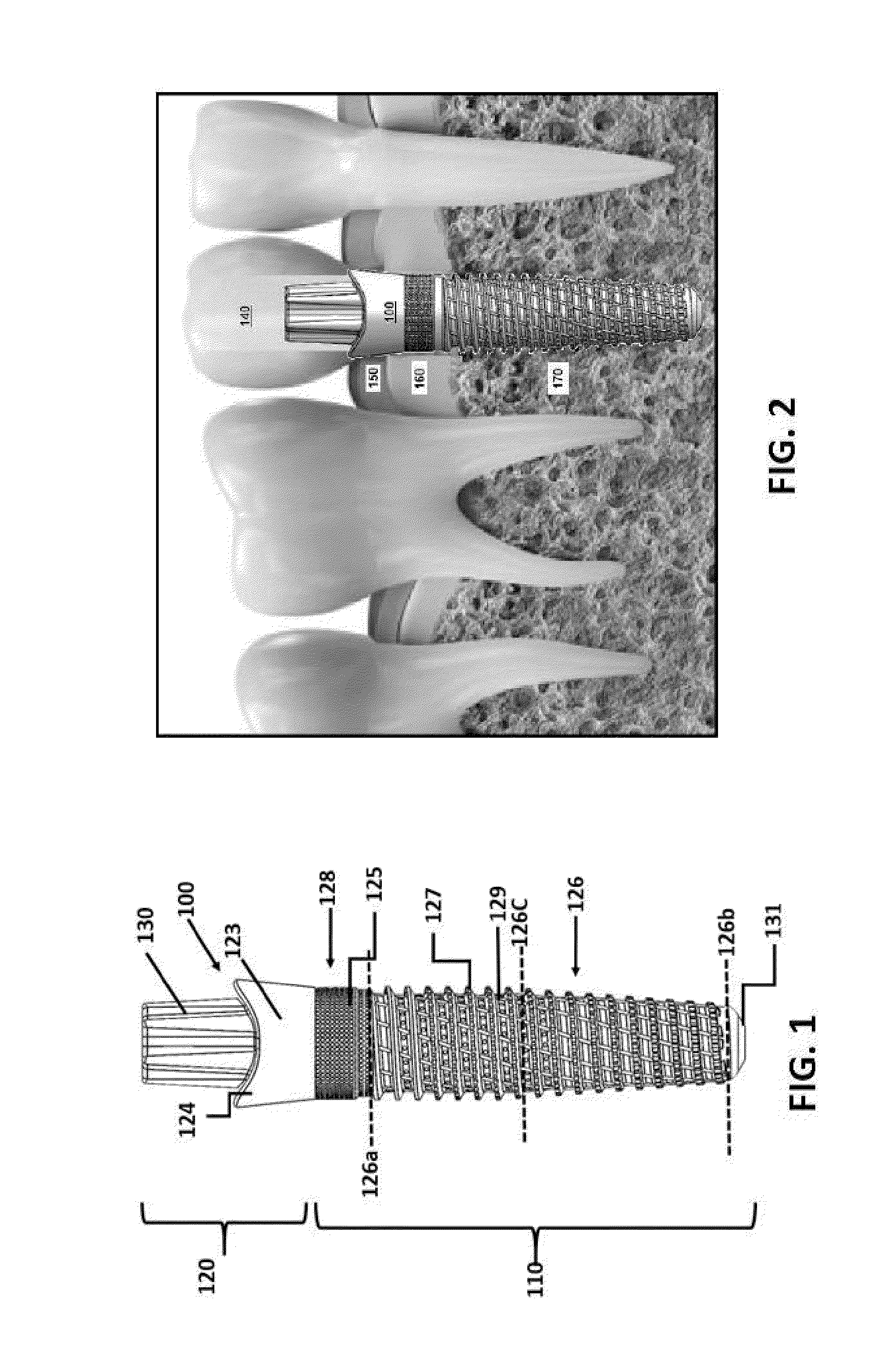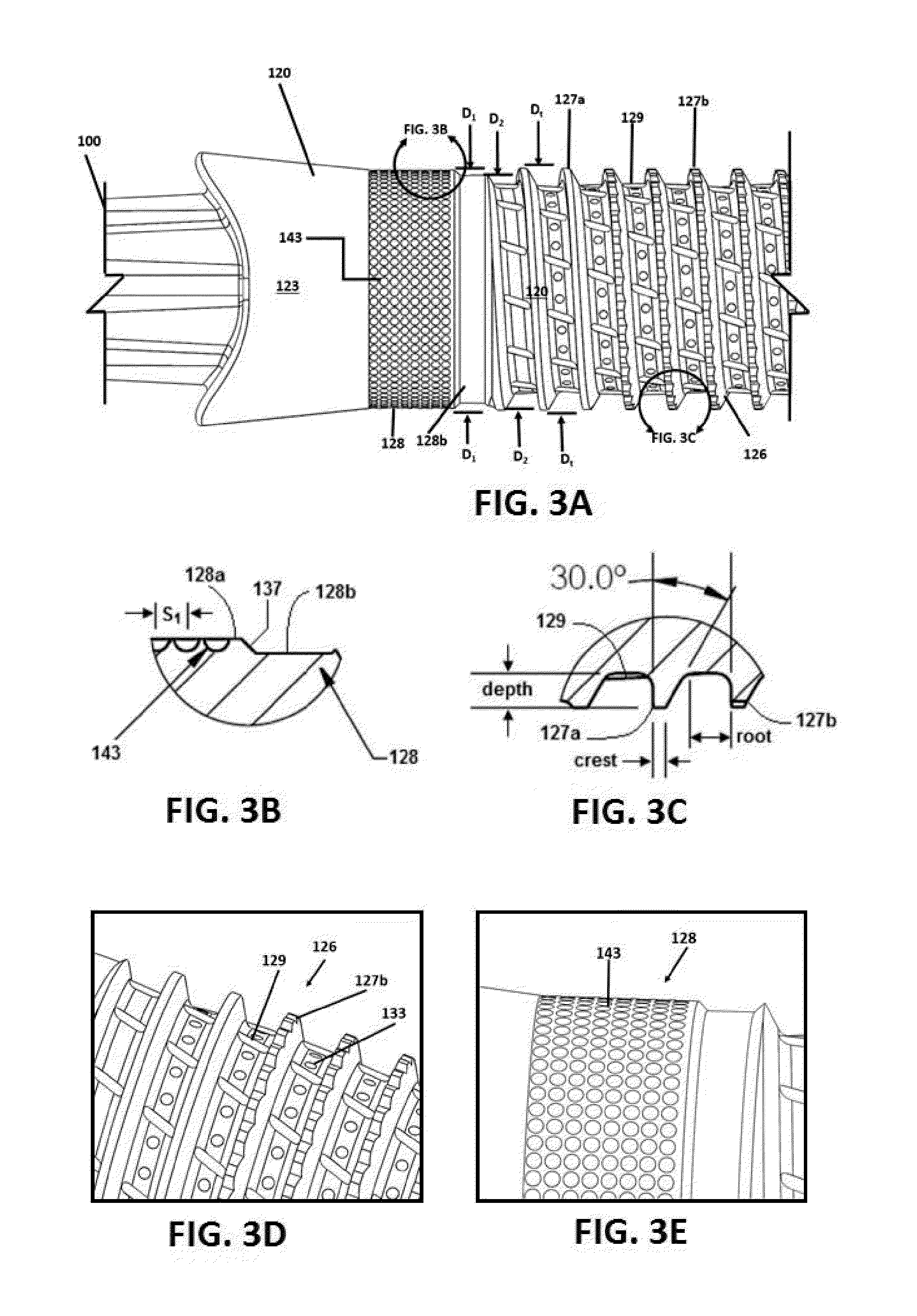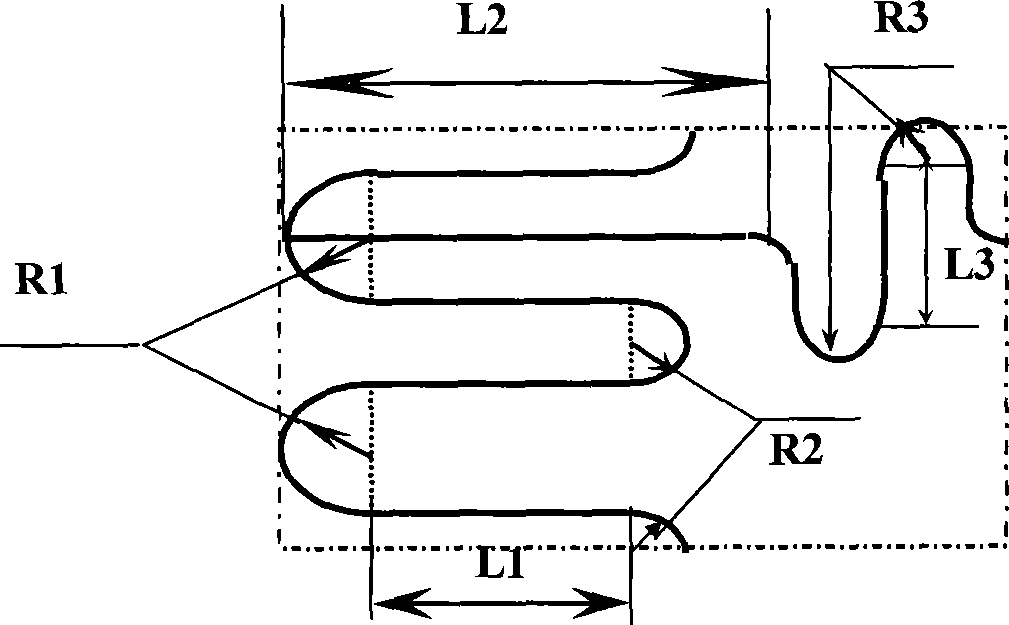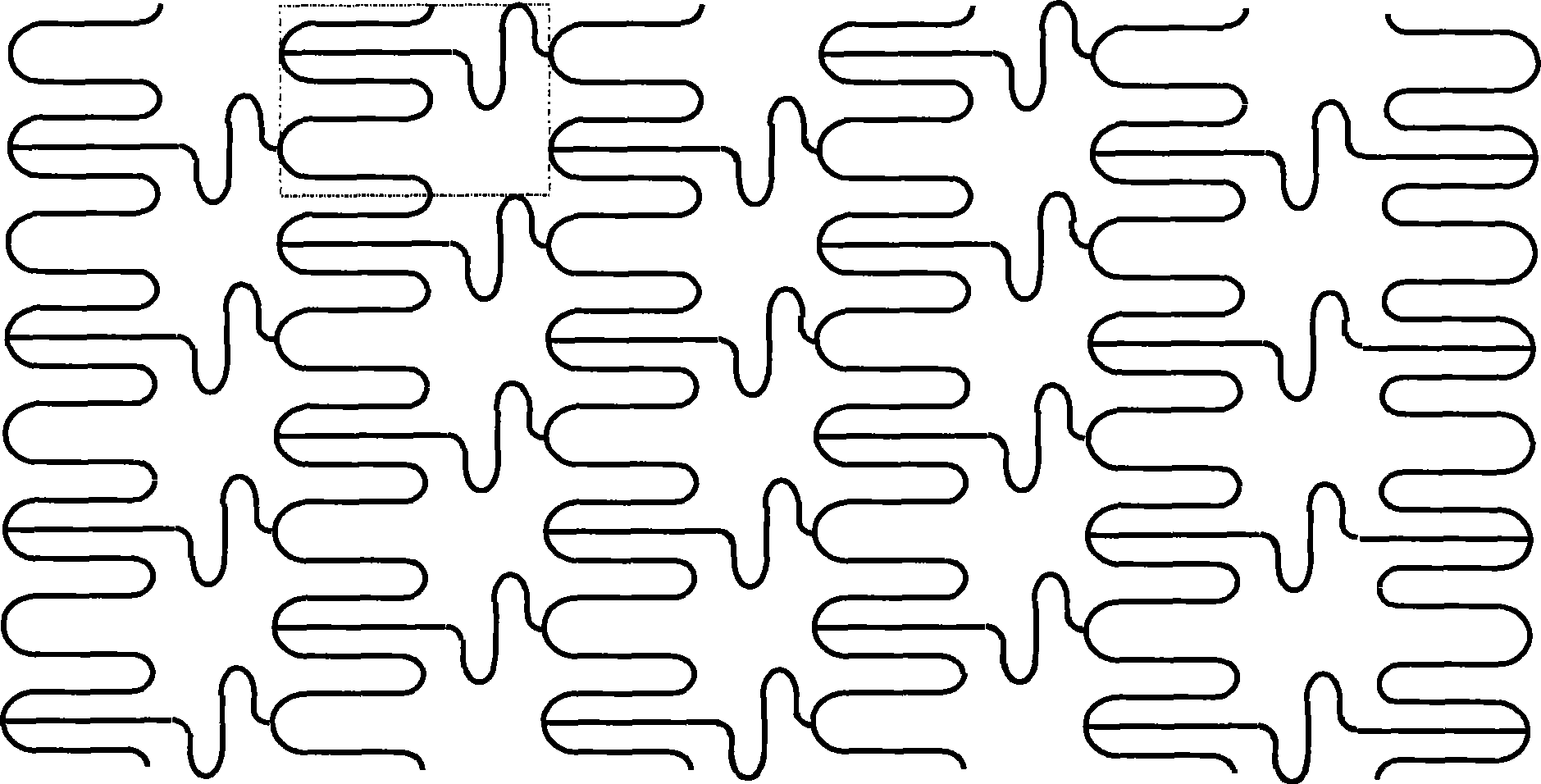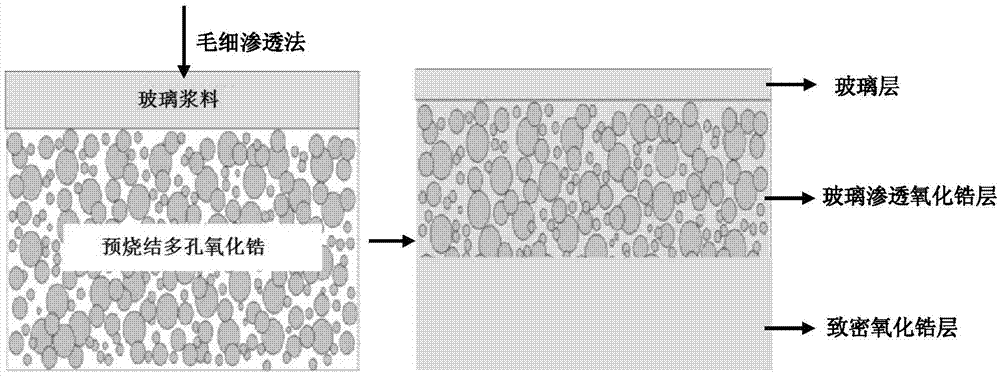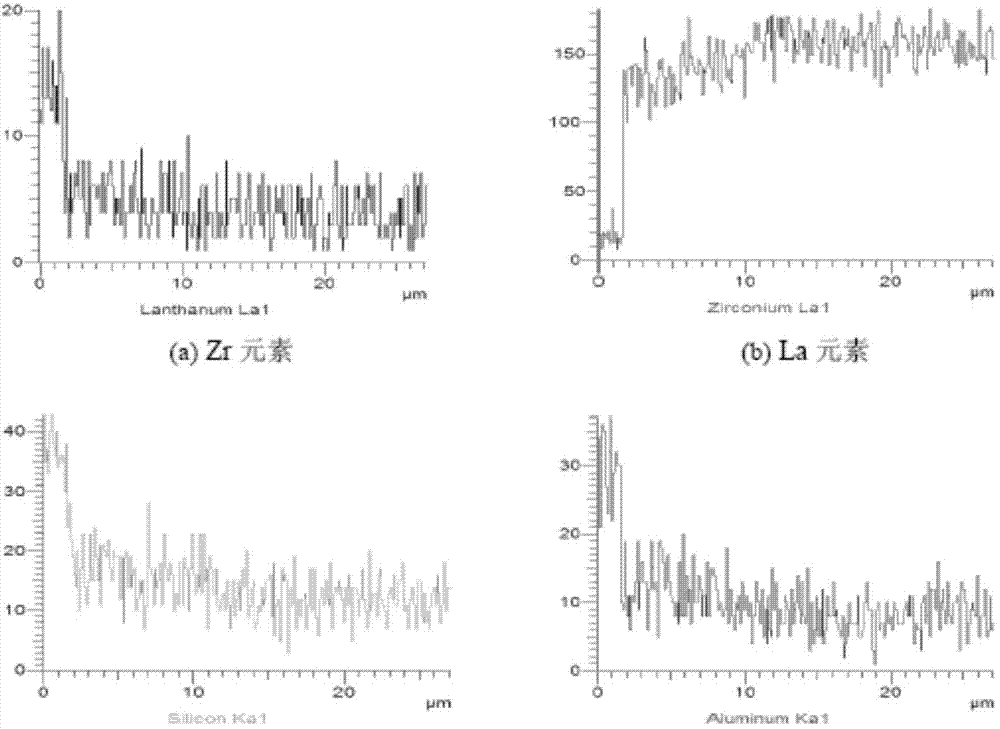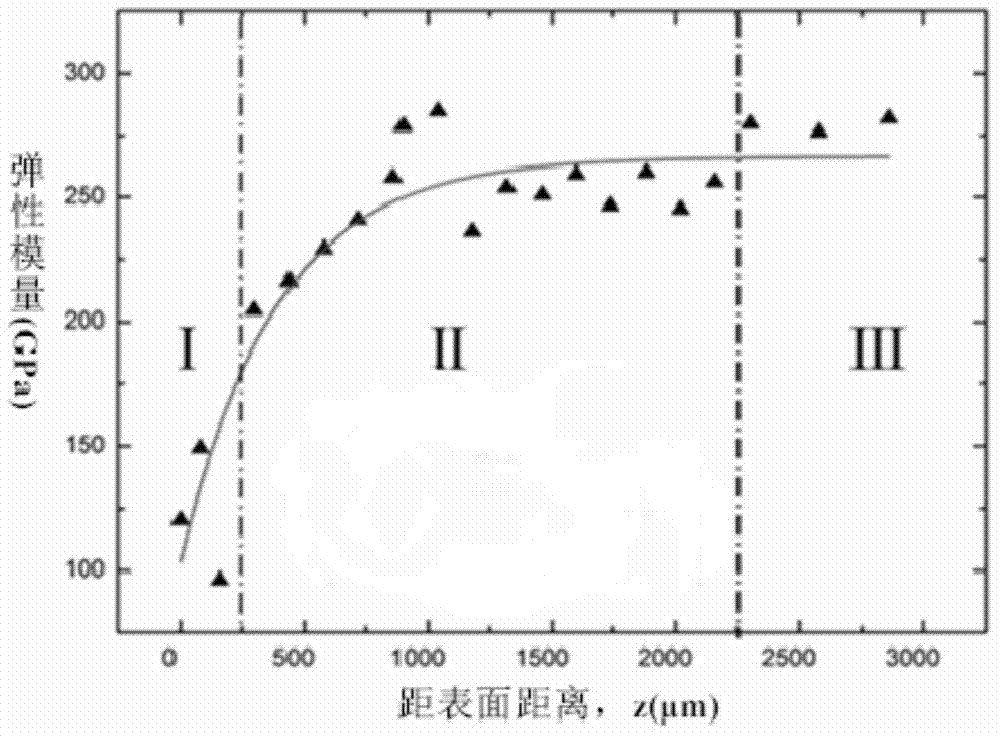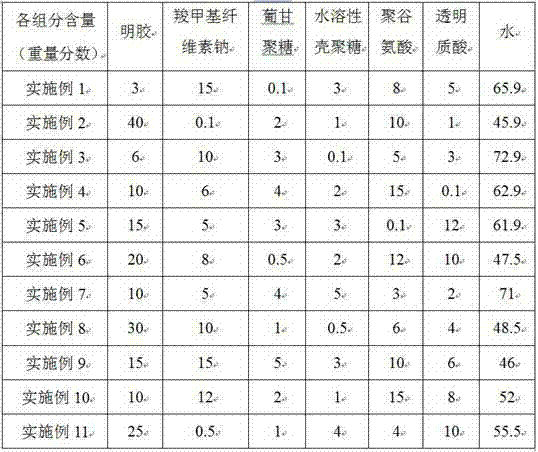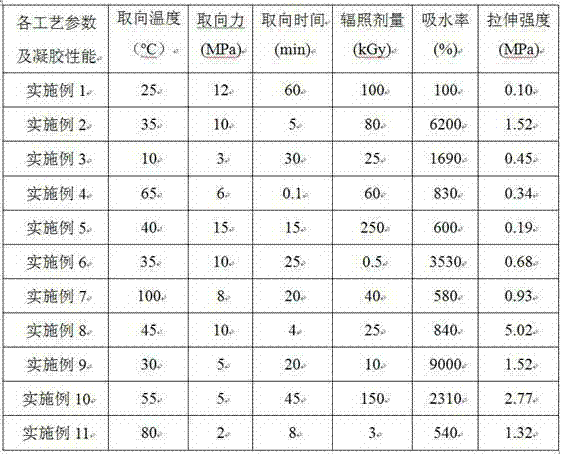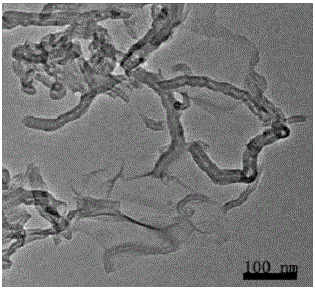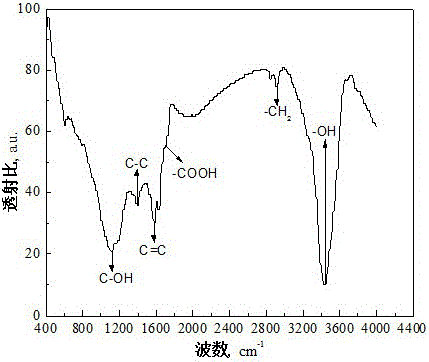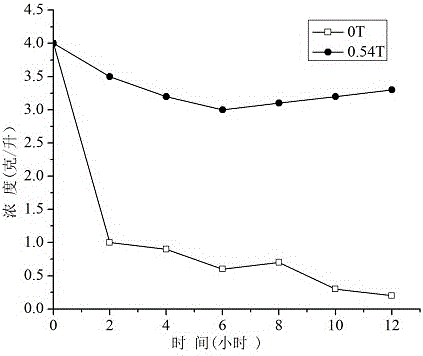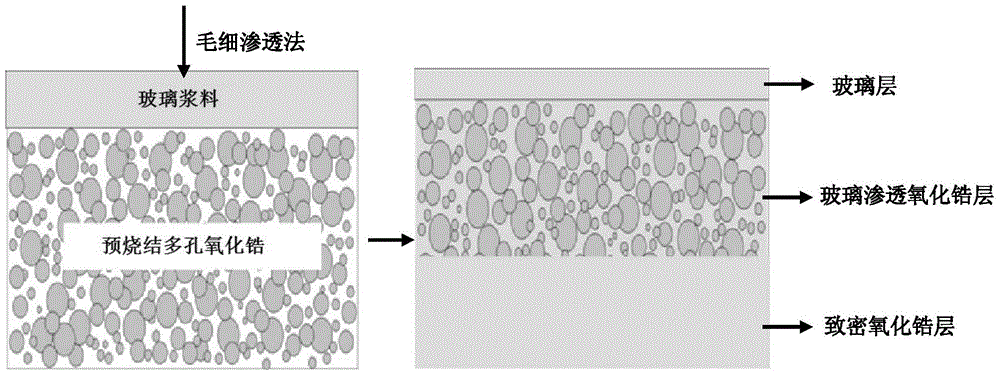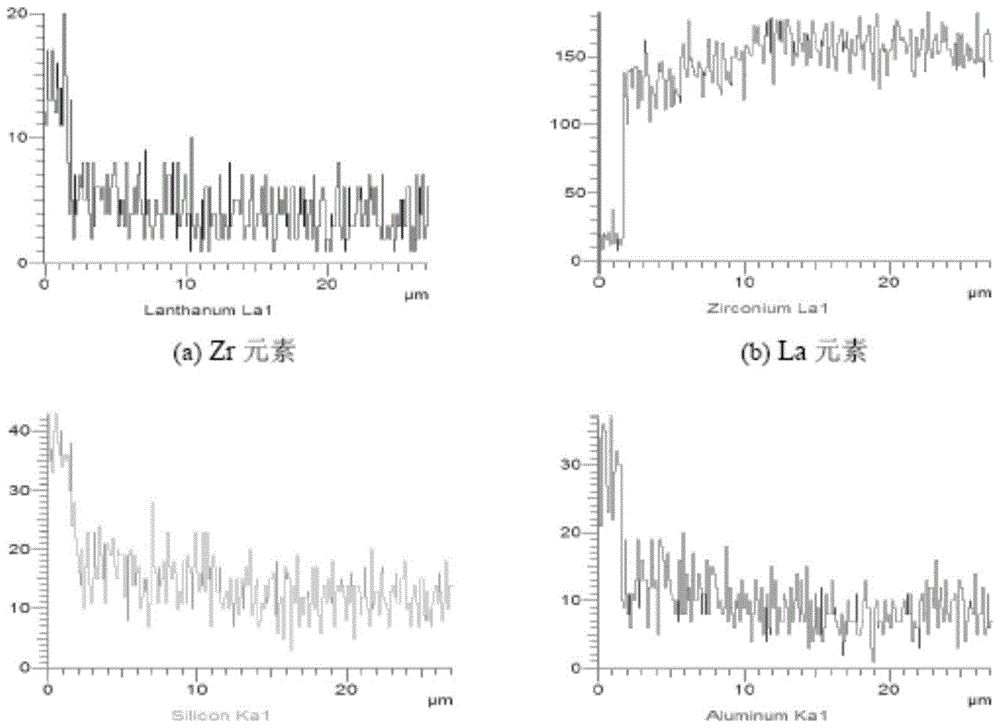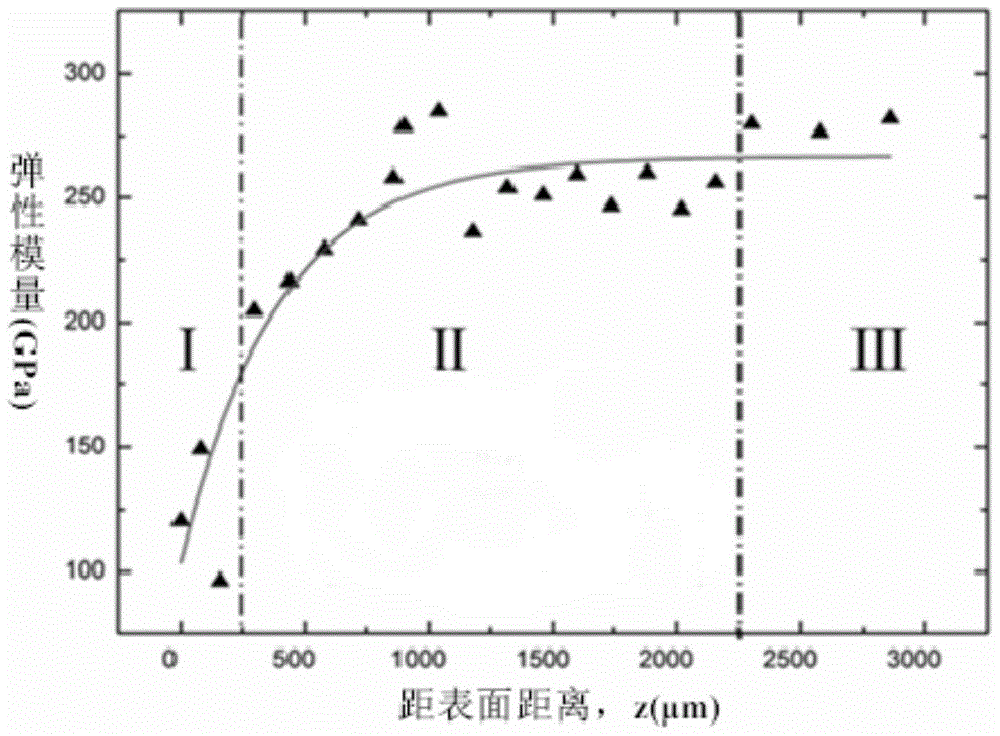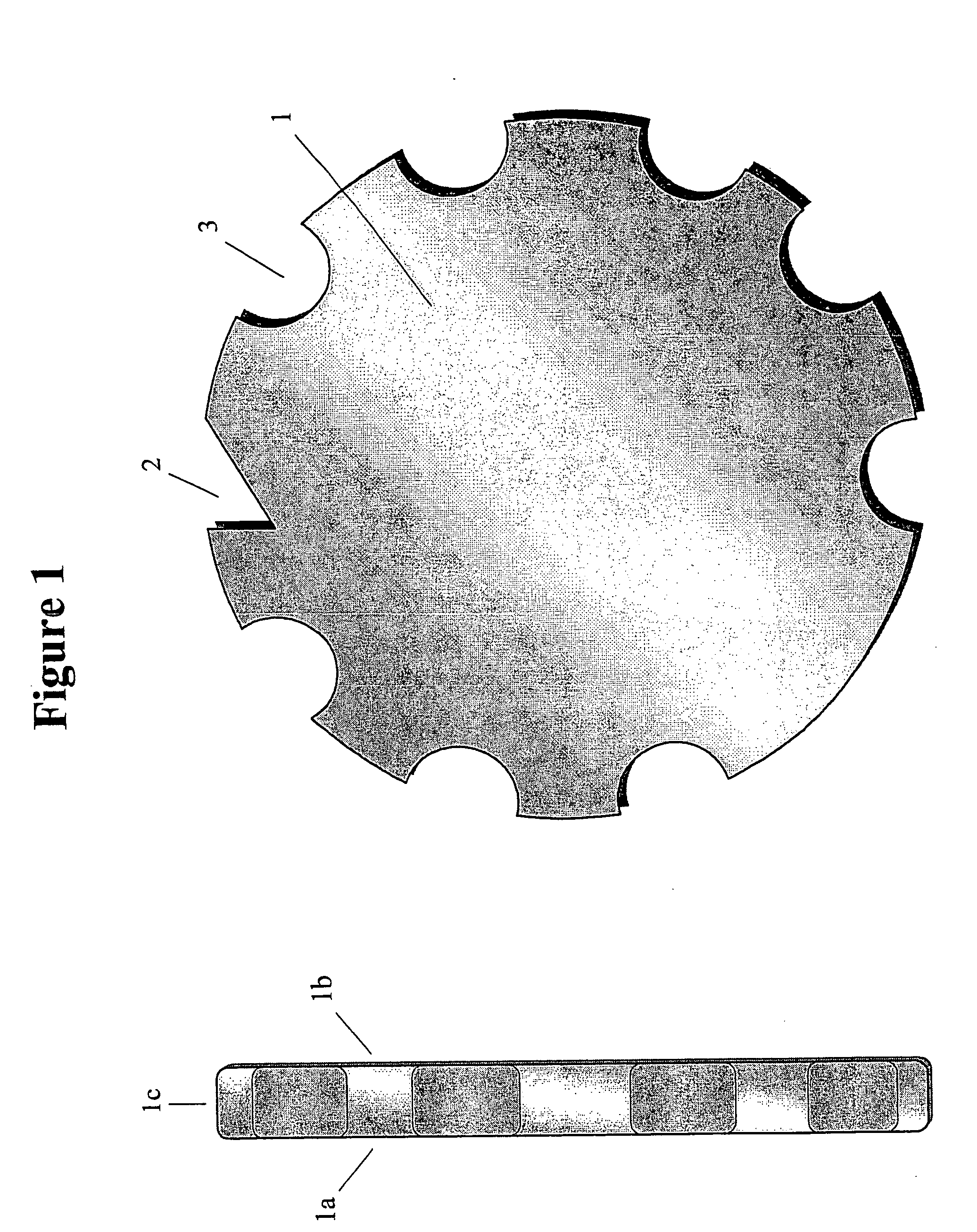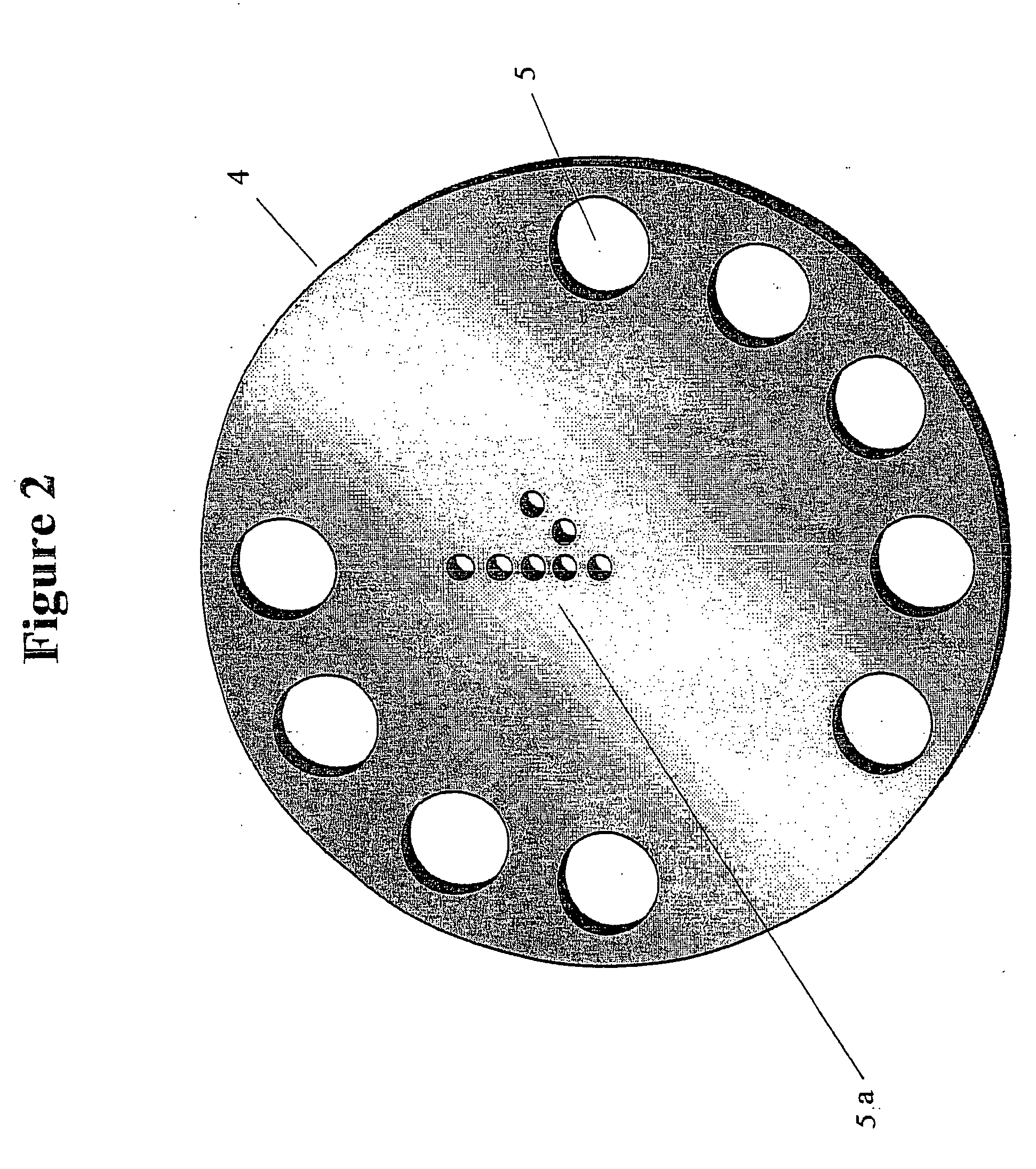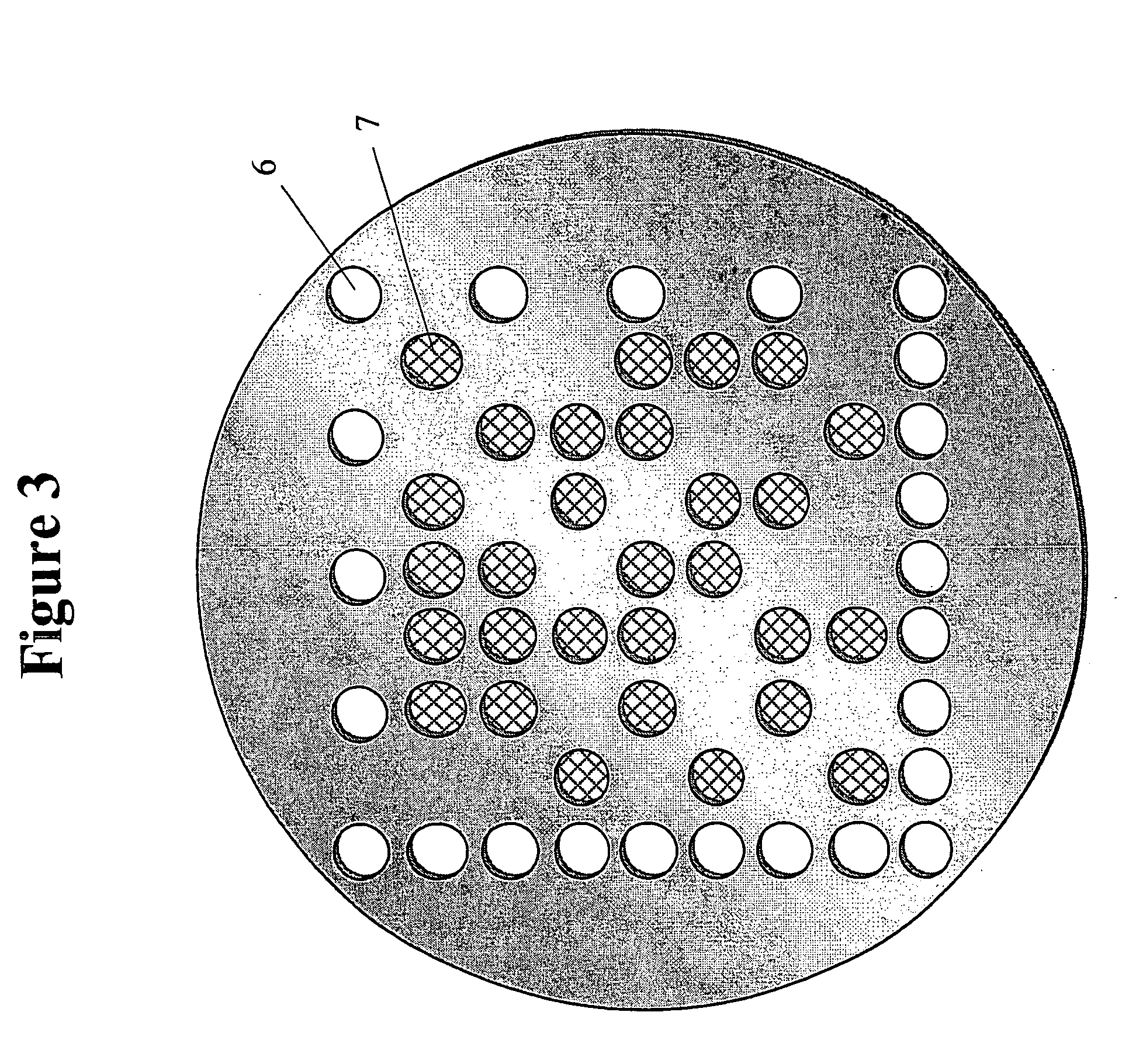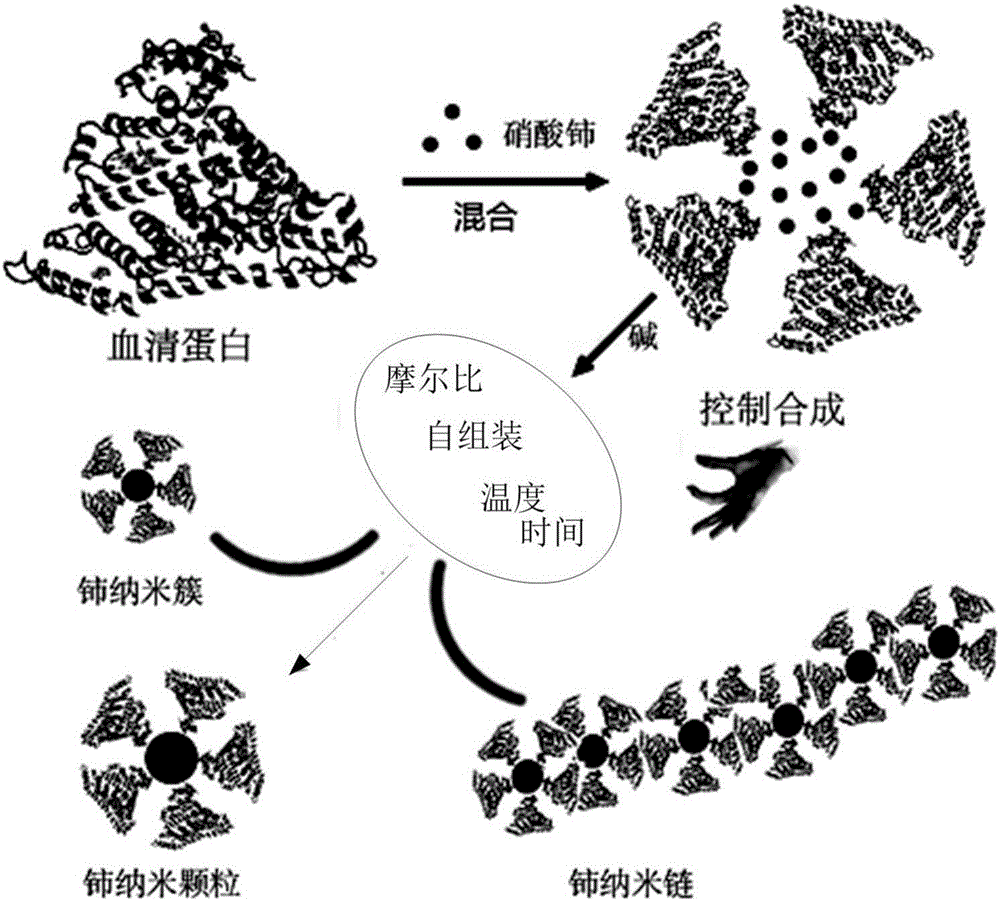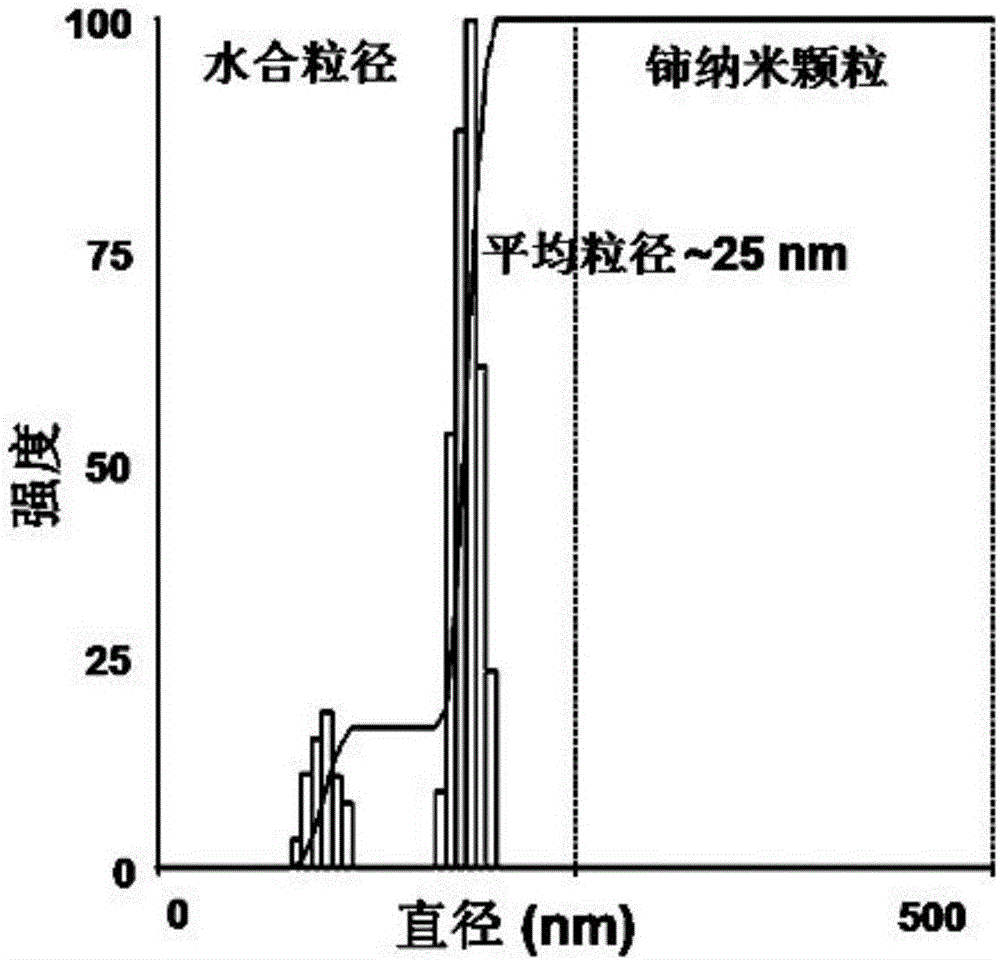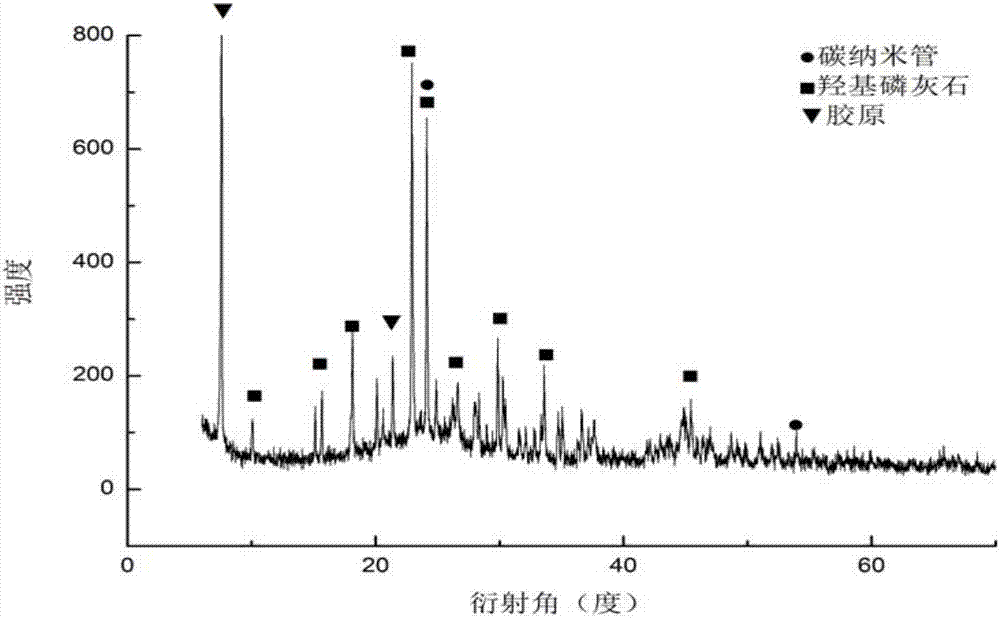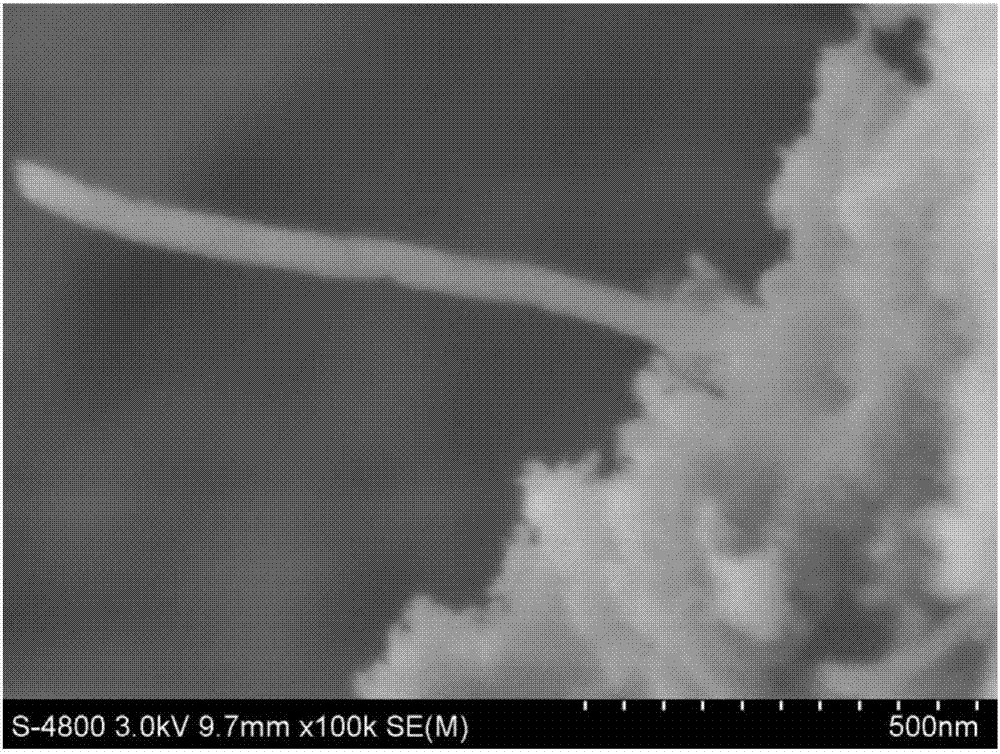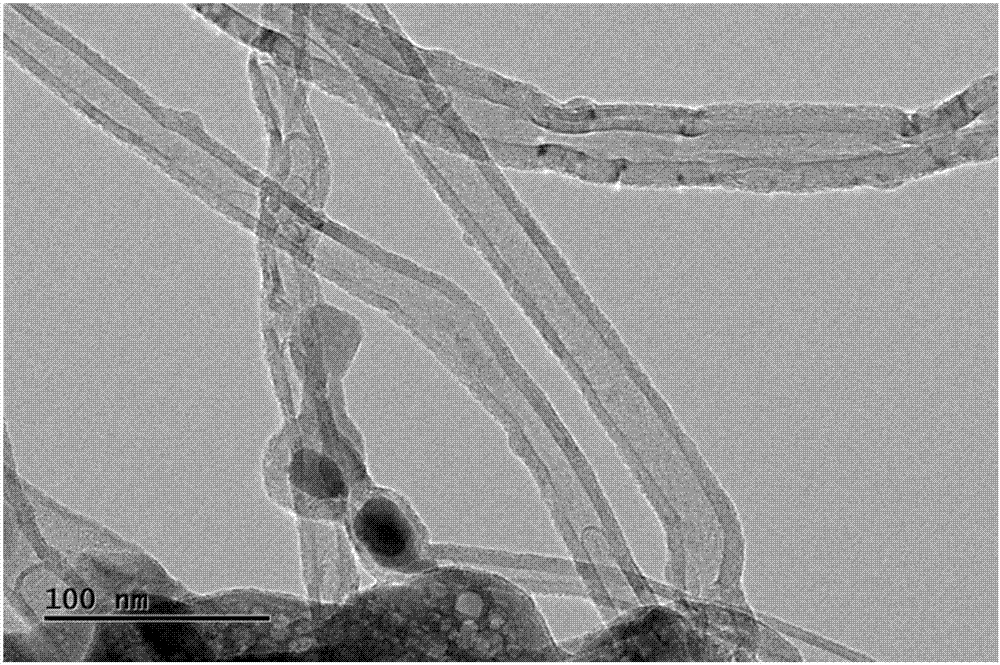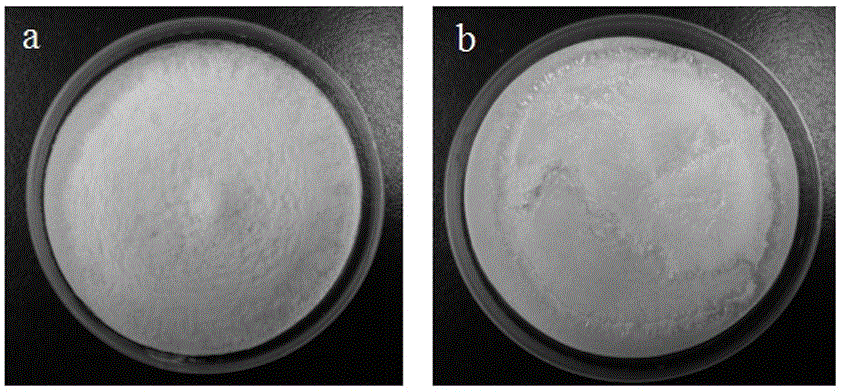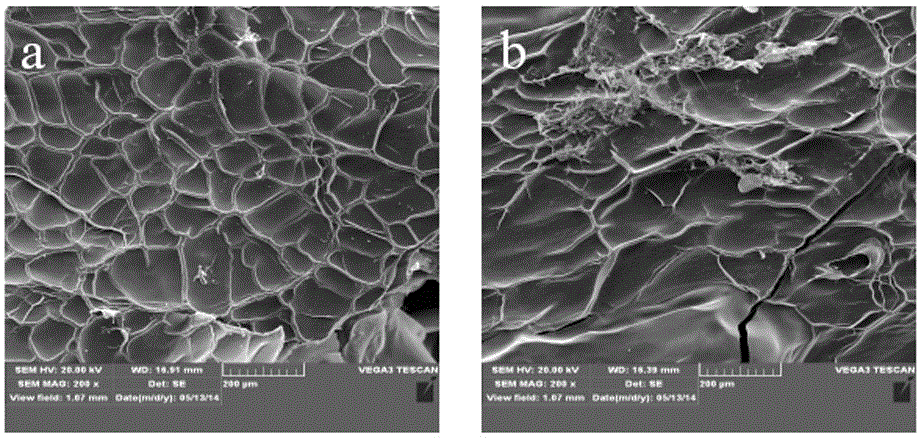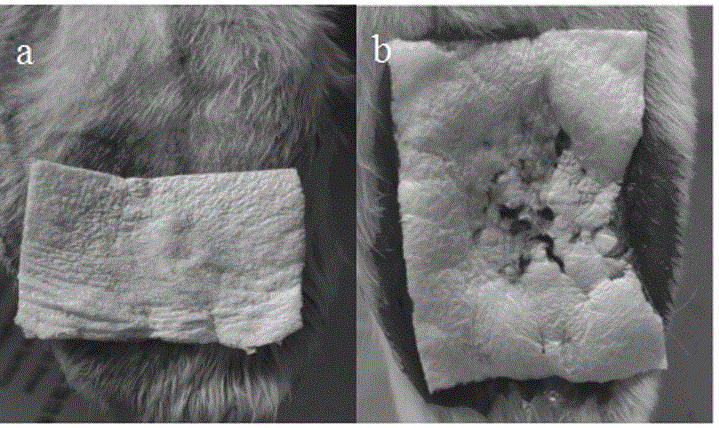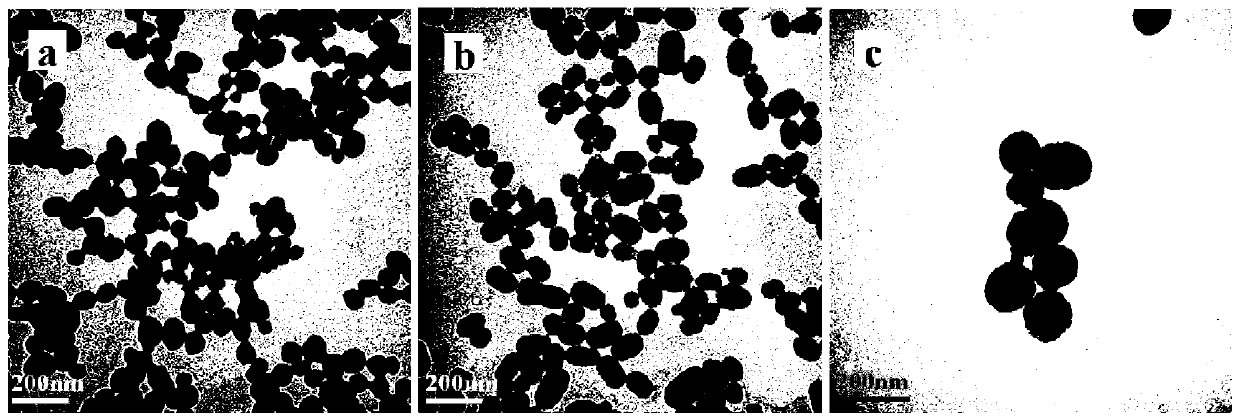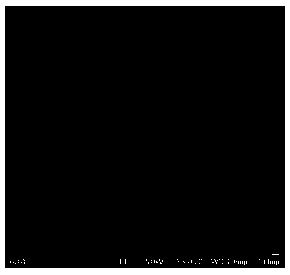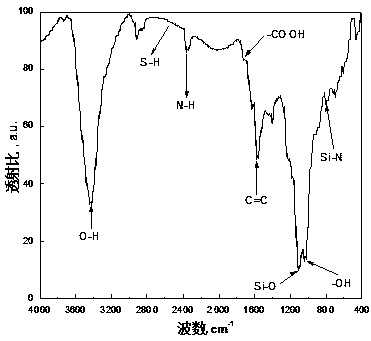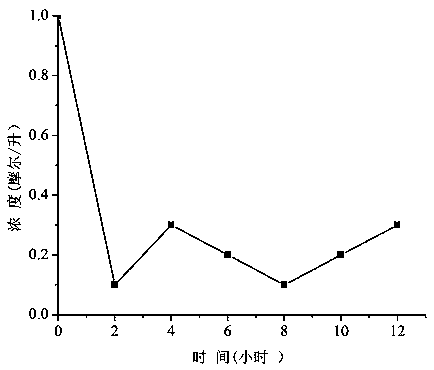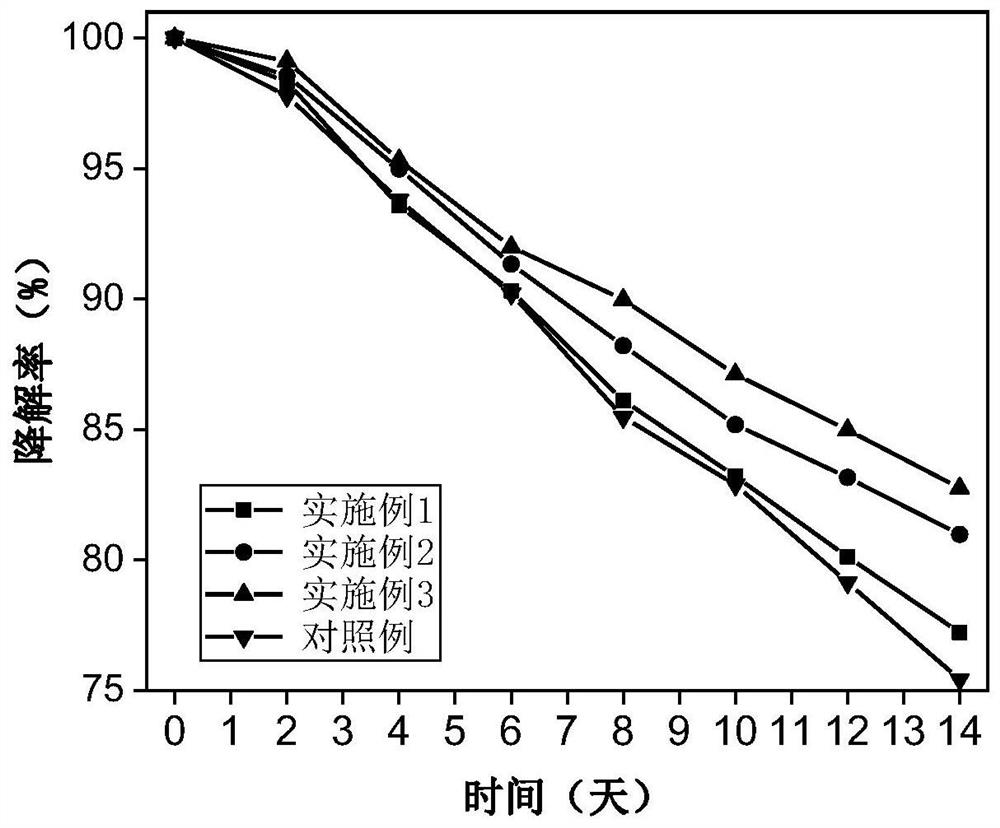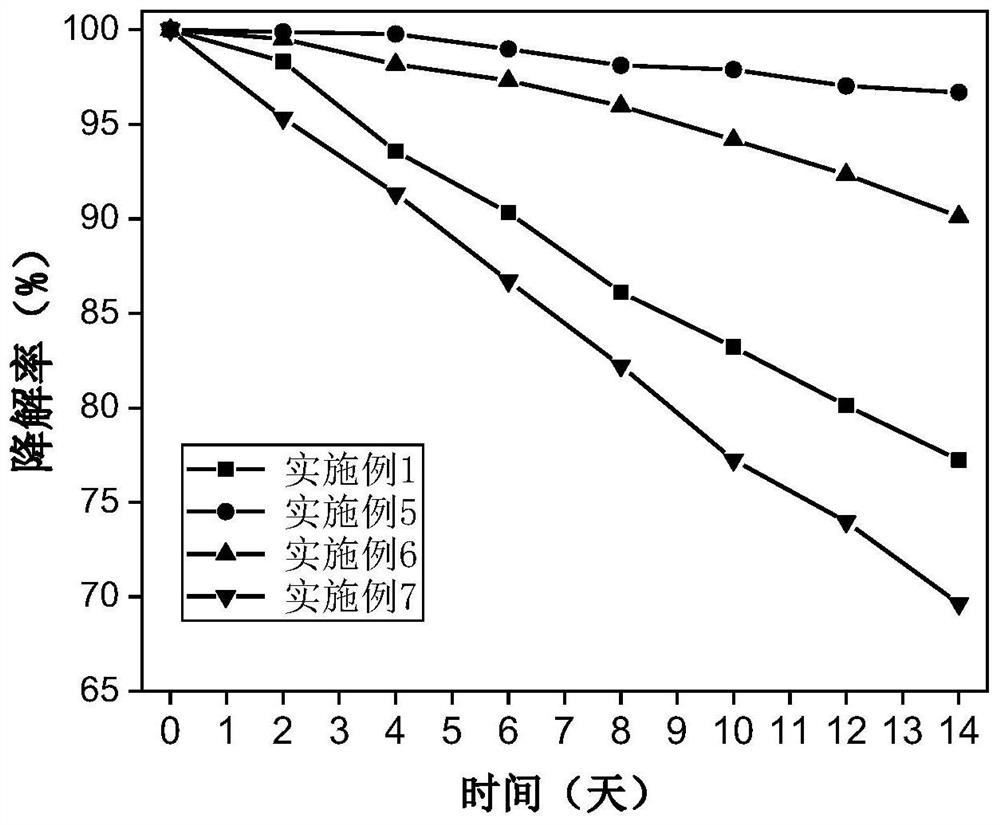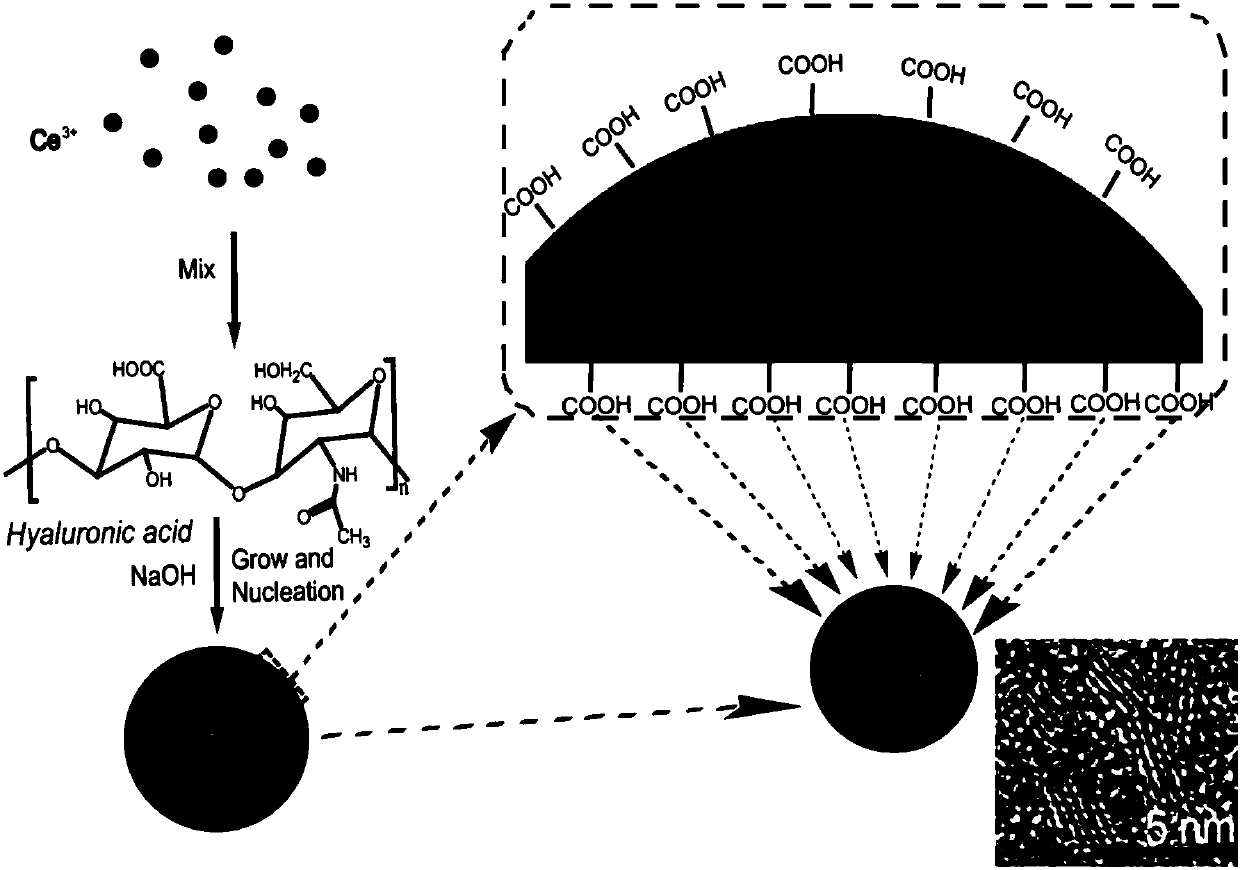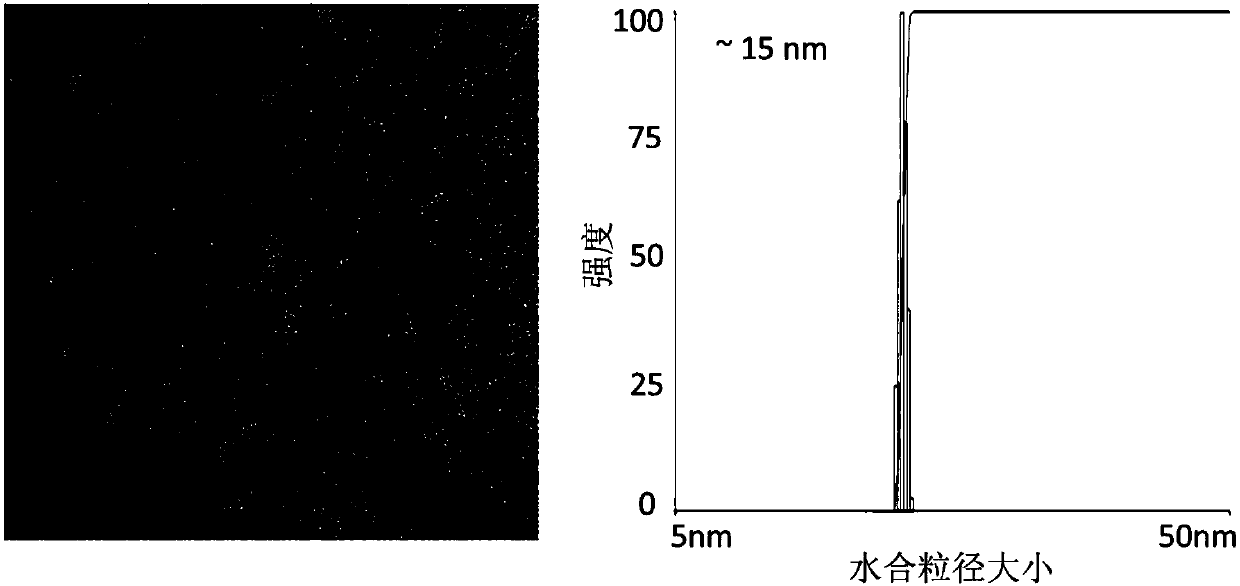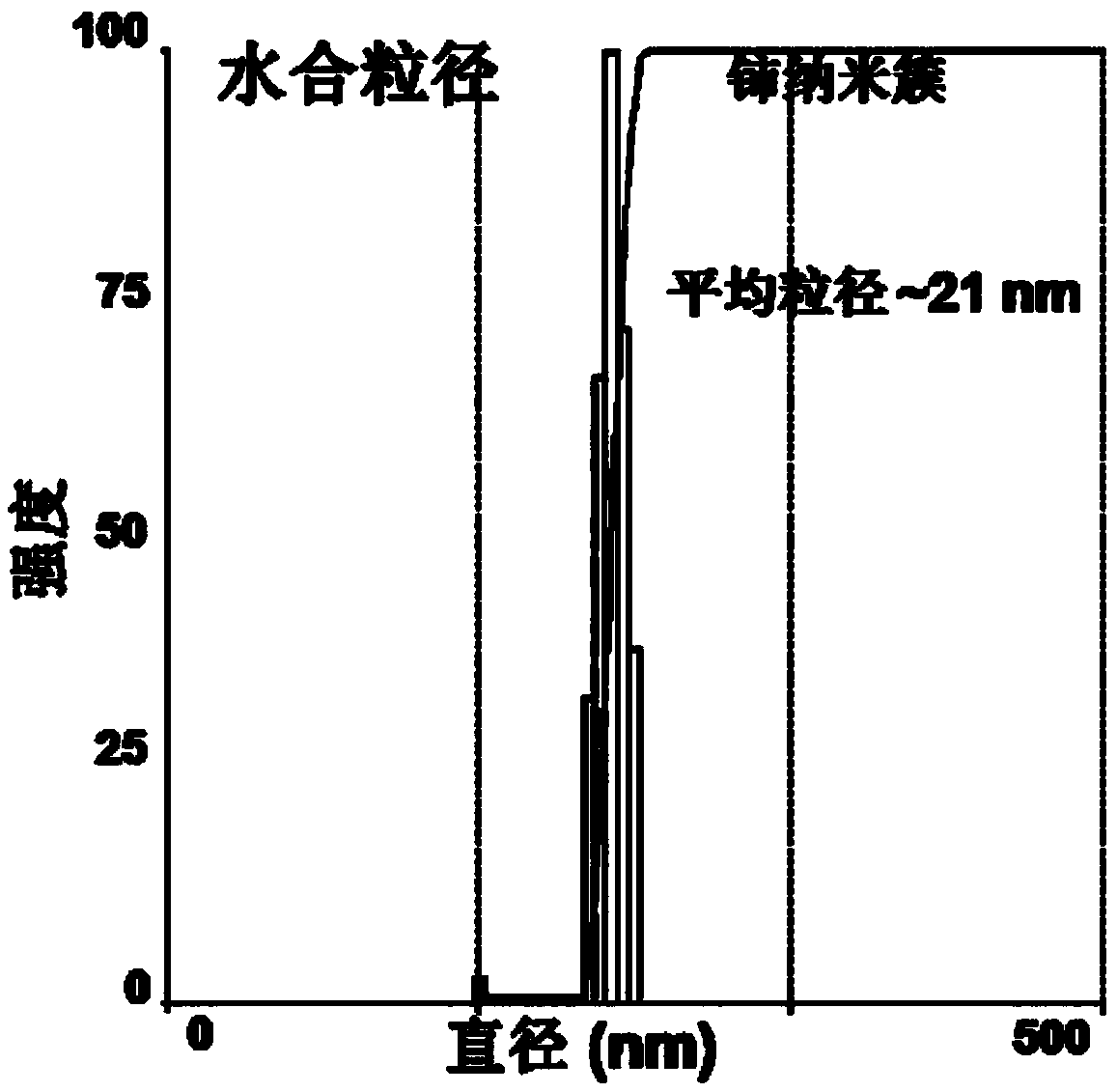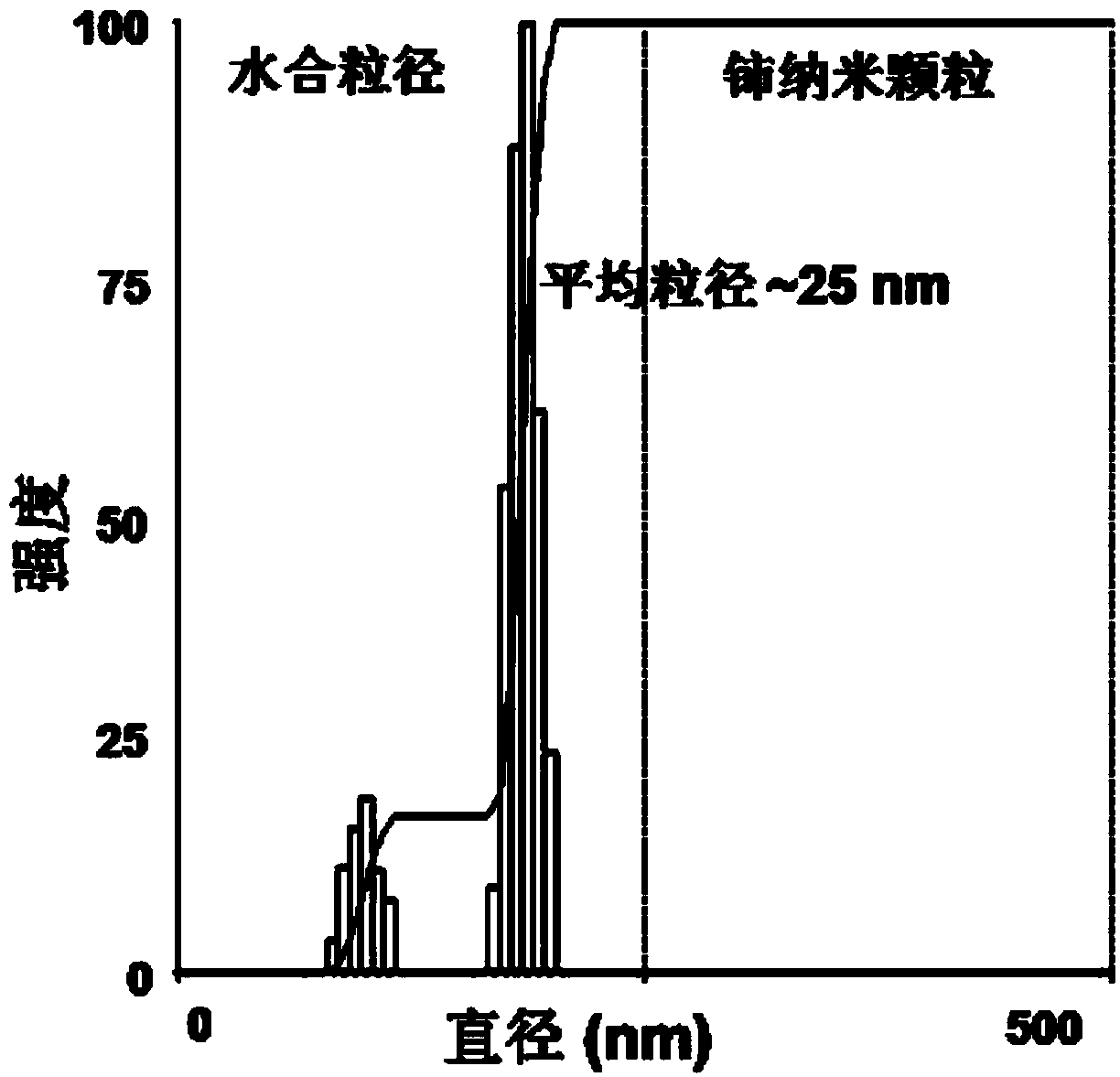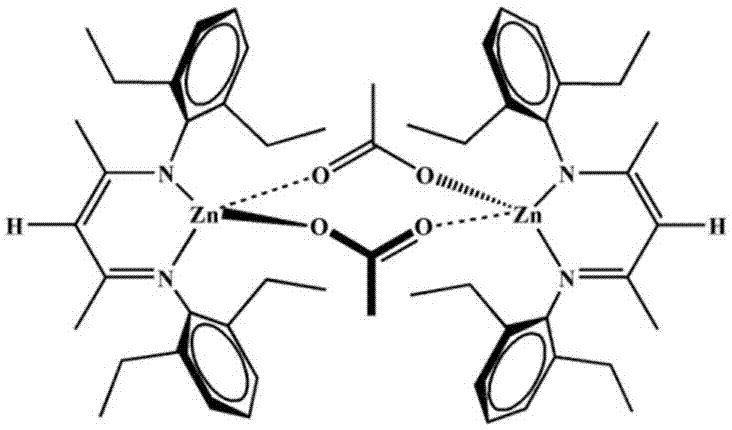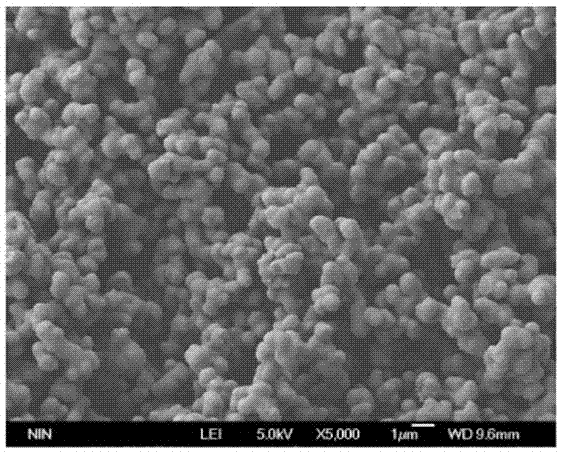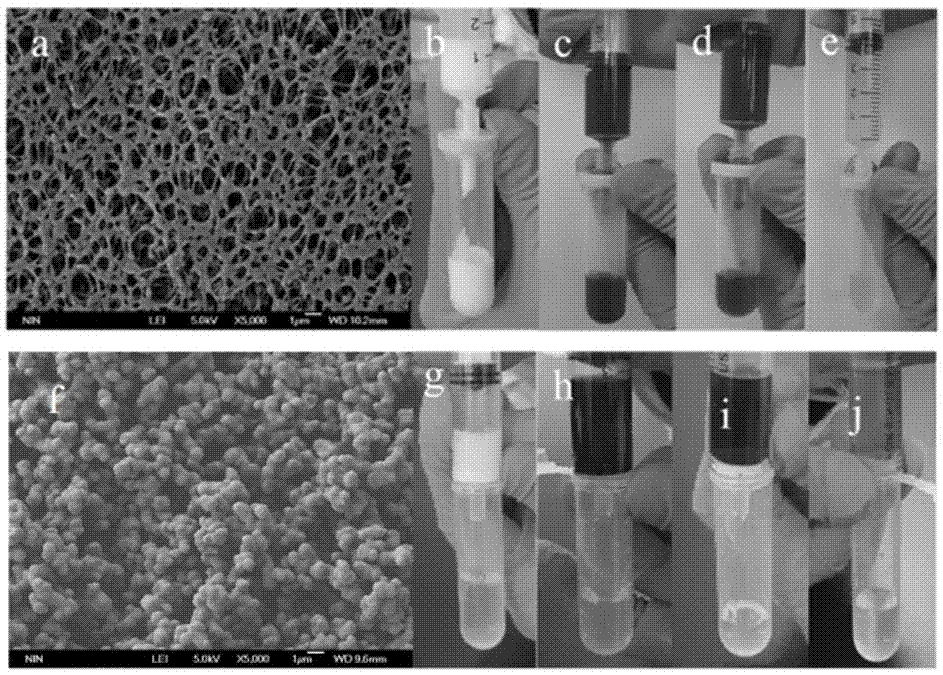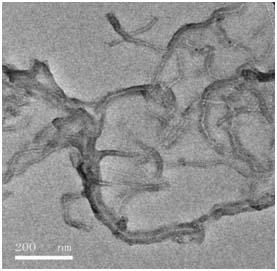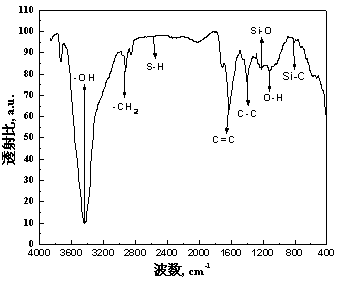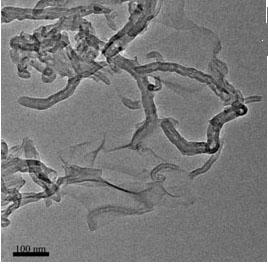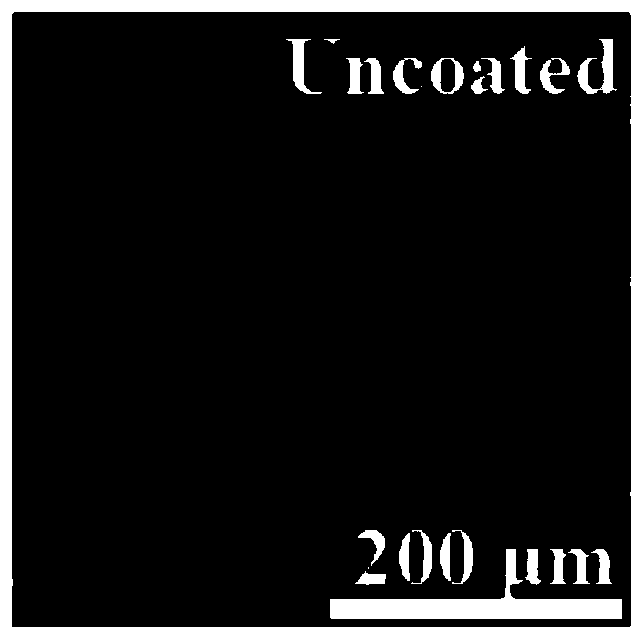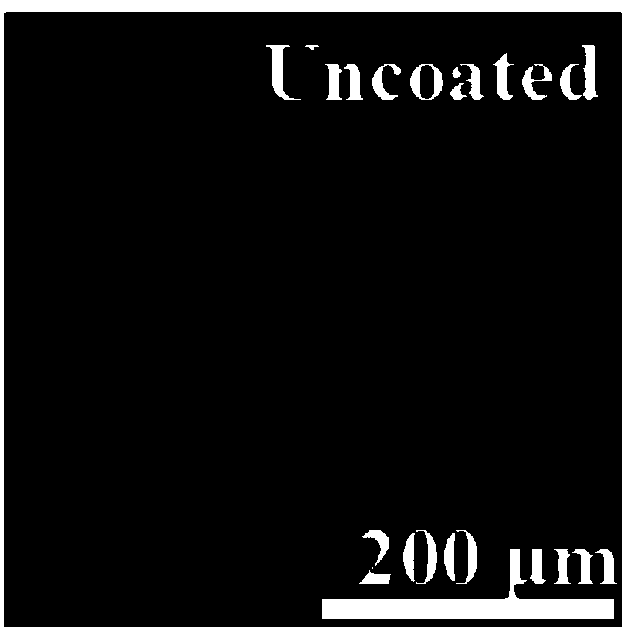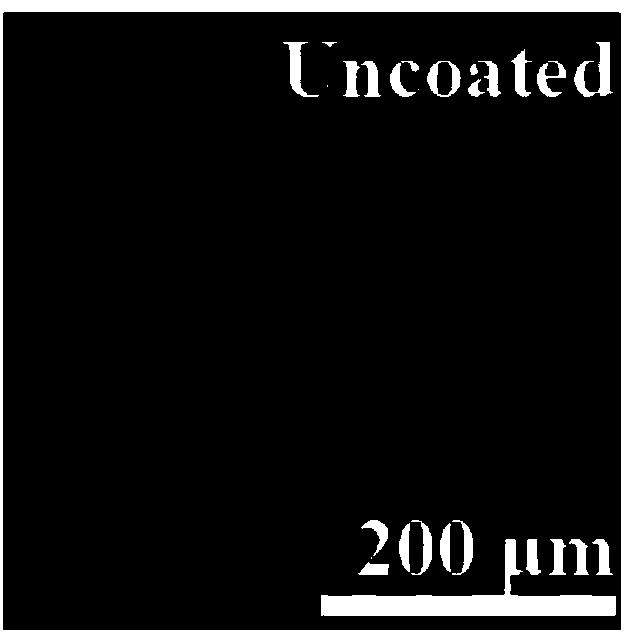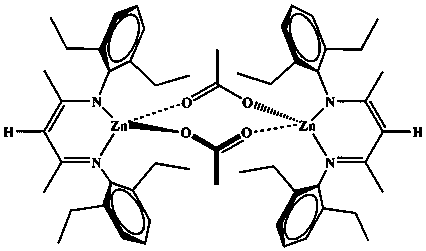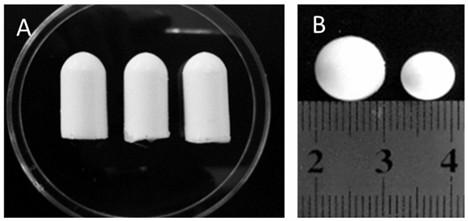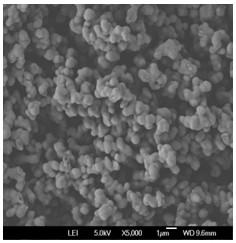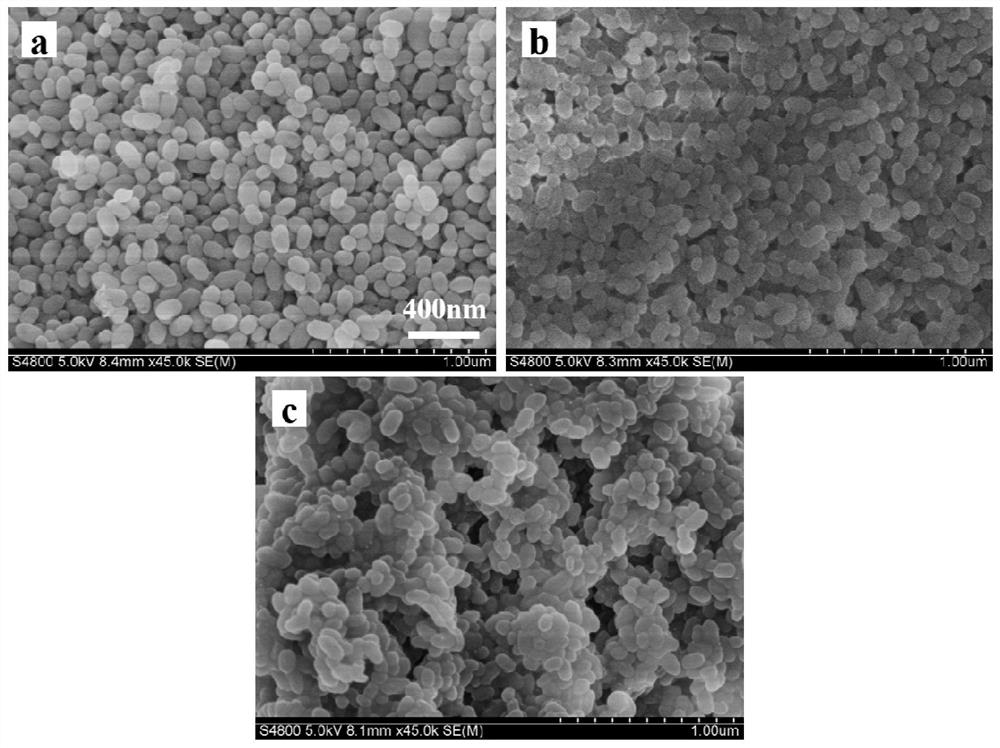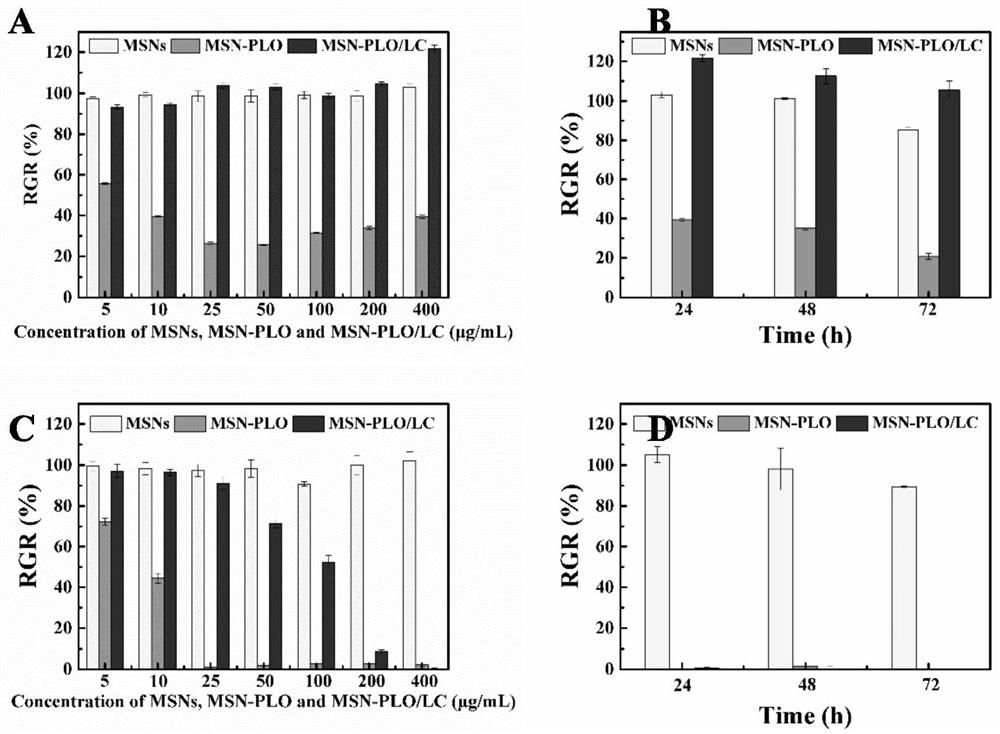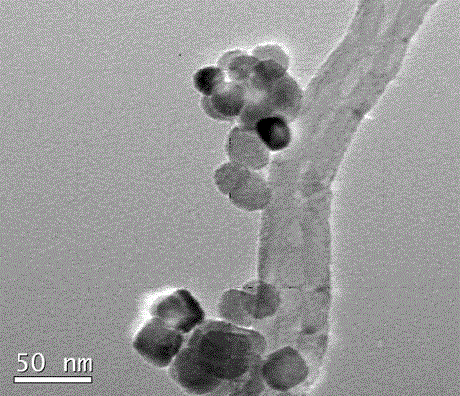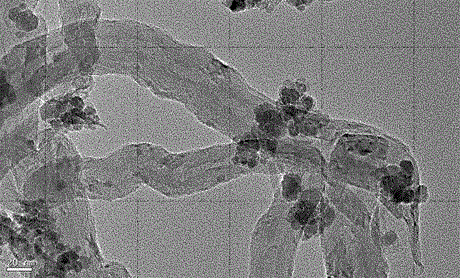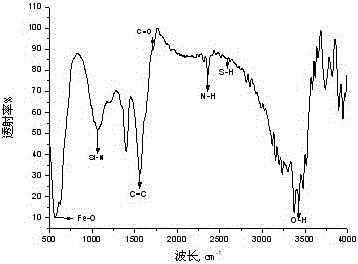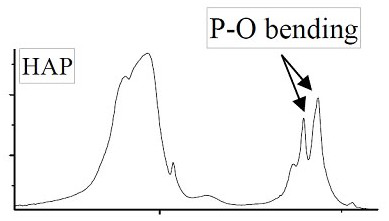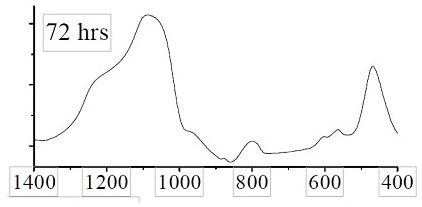Patents
Literature
Hiro is an intelligent assistant for R&D personnel, combined with Patent DNA, to facilitate innovative research.
34results about How to "Good biological compatibility" patented technology
Efficacy Topic
Property
Owner
Technical Advancement
Application Domain
Technology Topic
Technology Field Word
Patent Country/Region
Patent Type
Patent Status
Application Year
Inventor
Osseointegrative surgical implant
InactiveUS20160015483A1Improve primary stabilityPromote healingSuture equipmentsDental implantsCeramic compositeSurgical implant
Embodiments of the present invention provide an osseointegrative implant and related tools, components and fabrication techniques for surgical bone fixation and dental restoration purposes. In one embodiment an all-ceramic single-stage threaded or press-fit implant is provided having finely detailed surface features formed by ceramic injection molding and / or spark plasma sintering of a powder compact or green body comprising finely powdered zirconia. In another embodiment a two-stage threaded implant is provided having an exterior shell or body formed substantially entirely of ceramic and / or CNT-reinforced ceramic composite material. The implant may include one or more frictionally anisotropic bone-engaging surfaces. In another embodiment a densely sintered ceramic implant is provided wherein, prior to sintering, the porous debound green body is exposed to ions and / or particles of silver, gold, titanium, zirconia, YSZ, α-tricalcium phosphate, hydroxyapatite, carbon, carbon nanotubes, and / or other particles which remain lodged in the implant surface after sintering. Optionally, at least the supragingival portions of an all-ceramic implant are configured to have high translucence in the visible light range. Optionally, at least the bone-engaging portions of an all-ceramic implant are coated with a fused layer of titanium oxide.
Owner:OSSEODYNE SURGICAL SOLUTIONS LLC
Anti-coagulation stainless steel coronary arterial bracket and uses thereof
ActiveCN101385669AAvoid postoperative restenosisGood biological compatibilityStentsProsthesisMedicineWhole body
The invention relates to a medical apparatus, in particular to an anticoagulant stainless steel coronary support which is made from a high-nitrogen nickel-free austenitic stainless steel material with good blood compatibility. The support is of tubular structure with a mesh surface which is formed by orderly arranging a unit figure on the side surface of a tube along the circumference and axial direction, the primary supporting function is provided by U-shaped corrugated mesh wires extending along the axial direction, the corrugated mesh wires are connected into a whole body by soft mesh wires arranged at intervals, and the diameter of the mesh wire (width or thickness) is 40-100mum; and the surface of the support is passivated and coated with a medication. The anticoagulant stainless steel support has the advantages of good mechanical properties, good flexibility and good anticoagulant property, and can be used as a support for cardiovascular and cerebrovascular systems or a support for other cavity bodies.
Owner:ZHONGKE YIAN MEDICAL TECH BEIJING CO LTD
Dental partially-glass-infiltrated functionally-gradient zirconia ceramic material
ActiveCN104774007AReduce contentLow elastic modulusBiocompatibility TestingUltimate tensile strength
The invention discloses a dental partially-glass-infiltrated functionally-gradient zirconia ceramic material. The dental partially-glass-infiltrated functionally-gradient zirconia ceramic material is composed of three layers, i.e., (1) a glass layer with a thickness of 0.2 mm, (2) a glass-infiltrated zirconia functionally-gradient layer with a thickness of 0.3 mm and (3) a compact zirconia layer with a thickness of 0.5 mm, wherein glass comprises, by mass, 15% of La2O3, 5% of ZrO2, 5% of Y2O3, 20% of SiO2, 15% of B2O3, 15% of BaO, 15% of Al2O3, 4% of TiO2, 4% of CaO, 1% of CeO2 and 1% of Fe2O3. The bonding strength between the dental partially-glass-infiltrated functionally-gradient zirconia ceramic material and veneering porcelain is increased by 2.5 times compared with the bonding strength of a traditional zirconia material. The dental partially-glass-infiltrated functionally-gradient zirconia ceramic material has good biocompatibility and accords with standards prescribed in ISO-7405 and ISO-7406 Technical Reports--Biological Assessment of Dental Materials.
Owner:JINAN UNIVERSITY
Polymeric hydrogel for dressing and preparation method of polymeric hydrogel
InactiveCN104771780AGood biocompatibilityImprove environmental friendlinessAbsorbent padsBandagesHigh energyAdhesive
The invention provides a polymeric hydrogel for dressing and a preparation method of the polymeric hydrogel, belonging to the fields of radiation chemical and biomedical polymeric materials. The polymeric hydrogel is prepared from gelatin, sodium carboxymethylcellulose, gulcomannan, water-soluble chitosan, polyglutamic acid, hyaluronic acid and the like which are good in biocompatibility through blending, hot orientation and packaging; by controlling the temperature of hot orientation as well as orientation force and orientation time, the mechanical strength of the hydrogel is enhanced, and through high energy ray irradiation crosslinking, a regular aggregation structure obtained from the orientation is further immobilized and enhanced so as to synthesize high-strength dressing. The hydrogel disclosed by the invention is good in physicochemical and biological properties, high in tensile strength and good in transparency, and the hydrogel is relatively good in antibacterial and healing-promoting effects when applied to dressing. The polymeric hydrogel for dressing disclosed by the invention not requires an adhesive, a non-woven fabric or other reinforcing layers during preparing, and the polymeric hydrogel is simple in process and low in energy consumption; and the polymeric hydrogel can achieve sterilization and disinfection when radiating, and the polymeric hydrogel can reduce production cost and bring about benefit for production in a large scale.
Owner:INST OF NUCLEAR PHYSICS & CHEM CHINA ACADEMY OF
Method capable of removing limescale and heavy metal ions in water
ActiveCN106829933AImprove adsorption capacityLarge adsorption capacityWater contaminantsGrapheneFiltrationCarbon nanotube
The invention discloses a method capable of removing limescale and heavy metal ions in water and relates to the water treatment technology. The method capable of removing the limescale and the heavy metal ions in the water includes the steps of ultrasonically dispersing purified carbon nanotubes in anhydrous ethanol, mixing the dispersion liquid with dispersion liquid of oxidized graphene in the anhydrous ethanol, and subjecting the mixed liquid to ultrasonic treatment prior to suction filtration and vacuum drying so as to obtain oxidized graphene / carbon nanotube composite materials. The composite materials belonging to nanomaterials have excellent properties and comprise multiple kinds of active groups such as hydroxyl and carboxyl on the surfaces. The method capable of removing the limescale and the heavy metal ions in the water has the advantages that the method can remove pollutants through adsorptive effect of the surface groups and the heavy metal ions in sewage and is synergistic with the composite materials under the action of an applied magnetic field to remove the limescale; the method with secondary-pollution-free and adsorptive functions is simple in technological process and reliable in property so as to be applicable to such fields as targeted drug preparation, environment protection and pollutant monitoring; the method is simple in material preparation and low in cost and can be produced massively.
Owner:LANZHOU UNIVERSITY OF TECHNOLOGY
Method for preparing polyimide (PI)/surface graft amino acid modified hydroxyapatite (HAP) hybrid membrane
The invention relates to a method for preparing a polyimide (PI) / surface graft amino acid modified hydroxyapatite (HAP) hybrid membrane, which comprises the following steps: mixing 4,4'-diaminodiphenyl ether and a polar solvent, dissolving by stirring, adding pyromellitic dianhydride, dissolving by stirring in a nitrogen atmosphere, and reacting to obtain a polyamic acid (PAA) solution; adding surface graft amino acid modified HAP into a polar solvent, carrying out ultrasonic treatment, and adding into the PAA solution to obtain the PAA / modified HAP composite solution; standing for degassing, coating on glass, preevaporating, and immersing into a pure water coagulating bath or organic solvent-water mixed coagulating bath to obtain a PAA / modified HAP hybrid membrane; and carrying out imidization on the hybrid membrane to obtain the PI / modified HAP hybrid membrane. The method is simple. The obtained PI / modified HAP hybrid membrane has the advantages of excellent biocompatibility, high adsorption capacity for proteins and enzymes, favorable mechanical properties, favorable chemical corrosion resistance and wide application prospects.
Owner:DONGHUA UNIV
A functionally graded zirconia ceramic material partially infiltrated with dental glass
Owner:JINAN UNIVERSITY
Multifunctional product markers and methods for making and using the same
InactiveUS20050129454A1Increase information storage capacityGood biological compatibilityStampsFood coatingEngineeringProcess engineering
Owner:BURNTSIDE PARTNERS
Method for mediating proteins to synthesize and modify cerium nano material
InactiveCN106270546AGreat originalitySignificant technological progressTransportation and packagingMetal-working apparatusControl mannerReaction temperature
The invention relates to a method for mediating proteins to synthesize and modify a cerium nano material. The method is characterized in that serum protein with certain concentration is mixed with cerous nitrate to prepare a precursor solution of the cerium nano material; the precursor solution has nucleation growth under a potassium hydroxide solution alkaline condition; a reaction temperature and reaction time are further controlled, so that a cerium nano cluster, cerium nano particles and a cerium nano chain material are obtained in a controlled manner, and the cerium nano cluster, the cerium nano particles and the cerium nano chain material have good uniformity, dispersion and stability. Corresponding characterization analysis is carried out on the nano material and the surface thereof, so that BSA or HAS for correspondingly modifying the surface of the cerium nano material has excellent biological compatibility, has a great number of modifying functional groups such as carboxyl and an amino group, and further can graft and modify other functional molecules, and therefore, a foundation is laid for further applying the method in a living body. According to the method, reaction is green and economical, a control way is flexible and easily controlled, and repeatability is strong.
Owner:中国人民解放军第三军医大学军事预防医学院 +1
Preparation method of composite carbon nano tube reinforced hydroxyapatite material
InactiveCN107137772AHighlight substantiveGood mechanical propertiesTissue regenerationProsthesisDispersityPhosphate
The invention provides a preparation method of a composite carbon nano tube reinforced hydroxyapatite material and relates to a composition using phosphate as a basic material. A chemical vapor deposition method is used for preparing carbon nano tubes, functionalization treatment is conducted on the carbon nano tubes, a method integrating a magnetic liquid-phase stirring method and a hydrogel method is adopted to conduct in-site collagen layer coating on the surfaces of the carbon nano tubes subjected to the functionalization treatment, and thus the collagen coated composite carbon nano tube reinforced hydroxyapatite material is prepared through a dry-state press-forming method. The method overcomes the defects that the composite carbon nano tube reinforced hydroxyapatite material ubiquitous in the prior art is low in interface bonding strength and poor in carbon nano tube dispersity and accordingly the comprehensive mechanical property of the composite material is low; the composite material is poor in biocompatibility, or even has toxicity, and certain risk exists when the material serves as a biomedical material; the effect of repairing migration, growth and differentiation of bone cells is poor; the material is poor in usage effect when serving as the biomedical material.
Owner:HEBEI UNIV OF TECH
Method for preparing internal haemostatic dressing through programmed cooling
ActiveCN106729958AHigh mechanical strengthGood hemostatic effectSurgical adhesivesPharmaceutical delivery mechanismBiocompatibility TestingBiological materials
The invention discloses a preparation method of an internal haemostatic dressing. The preparation method is characterized by taking human-like collagen as a raw material, adding injection water, stirring and dissolving, then freezing by setting a specific cooling rate for accurately cooling and pre-freezing, vacuum freezing and drying, then carrying out thermal crosslinking, irradiating Co60 and sterilizing to finally obtain an internal haemostatic dressing. The internal haemostatic dressing prepared by the method is high in safety, high in biocompatibility and obvious in haemostatic effect, can be applied to hemostasis of various wounds and post-operation hemostasis, and has good application prospects in relevant fields of biomedical materials and tissue engineering.
Owner:NORTHWEST UNIV(CN)
Polyornithine/carboxymethyl lentinan layer-by-layer self-assembled drug carrier and preparation method thereof
ActiveCN111388449AThe number of layers is controllableEasy to operateOrganic active ingredientsPharmaceutical non-active ingredientsPolyelectrolyteDrug carrier
The present invention discloses a polyornithine / carboxymethyl lentinan layer-by-layer self-assembled drug carrier and a preparation method thereof. The polyornithine / carboxymethyl lentinan layer-by-layer self-assembled drug carrier comprises a MSNs nano core and a shell layer formed by layer-by-layer self-assembly of polyornithine and carboxymethyl lentinan The MSNs core is prepared by a sol-gelmethod. A layer-by-layer self-assembly technology is used to wrap the two polyelectrolytes with potential health-improving properties on surfaces of the MSNs, can control a burst release effect produced by the MSNs, and also obtains a sustained release preparation with better biological compatibility.
Owner:HUAQIAO UNIVERSITY
A method for efficiently removing heavy metal ions and organic matter in water
ActiveCN106830168BImprove adsorption capacityEasy to separateOther chemical processesWater contaminantsNanotubeGraphite oxide
A method of efficiently removing heavy metal ions and organic matters in water relates to a water treatment technique and is characterized in that purified carbon nanotubes are ultrasonically dispersed in absolute ethyl alcohol, the dispersed material is subjected to mixed ultrasonic treatment with absolute ethyl alcohol dispersion containing graphene oxide, and suction filtering and drying are performed to obtain amino and thiol modified graphene oxide / carbon nanotube composite; the composite above is dispersed in mixed solution of absolute ethyl alcohol, acetic acid, acetone and trimethoxysilylpropanethiol, nitrogen is introduced for protection, suction filtering, separating and drying are performed after reaction, the dried material is dispersed in absolute ethyl alcohol solution, hydrazine is added under nitrogen protection, washing with water and absolute ethyl alcohol is performed after reaction, and vacuum drying is performed to obtain amino and thiol modified graphene / carbon nanotube composite; under the action of an external magnetic field, the composite is added to circulating water containing heavy metal ions and organic matters in order for adsorbing.
Owner:LANZHOU UNIVERSITY OF TECHNOLOGY
Antibacterial polyurethane foam material and preparation method and application thereof
InactiveCN113603855AImprove antibacterial propertiesLong-term stable antibacterial effectSurgical adhesivesPharmaceutical delivery mechanismPolymer scienceSide chain
The invention relates to an antibacterial polyurethane foam material and a preparation method and application thereof, solves the technical problems of high cost and non-ideal effect of the existing nasal cavity hemostatic material, and provides the antibacterial polyurethane foam material. The antibacterial effective component in the antibacterial polyurethane foam material is long side chain quaternized chitosan with 12 carbons on the side chain. The invention also provides a preparation method and application thereof. The material can be used in the field of antibacterial materials.
Owner:BEIJING UNIV OF CHEM TECH +1
Method for synthesizing modified cerium nanometer quantum dots under mediation of hyaluronic acid and product and application thereof
ActiveCN107596381AGood biological compatibilitySynthetic Modification RealizationMaterial nanotechnologyHeavy metal active ingredientsBiocompatibility TestingCerium
The invention relates to a method for synthesizing modified cerium nanometer quantum dots under mediation of hyaluronic acid and a product and application thereof. The method comprises the following specific steps: dissolving hyaluronic acid by adding water, then adding trivalent cerium salt, reacting for 0.5-1h under a magnetic stirring condition to synthesize a precursor, then adding an alkalinesolution into a reaction system, performing a nucleating and curing reaction, and purifying to remove unreacted inorganic ions and the unreacted hyaluronic acid to obtain the hyaluronic acid-coated cerium nanometer quantum dots. By the method, the reaction is environmentally friendly and economical, the regulative way is flexible and easy to control, and the repeatability is strong; the obtainedquantum dots are uniform in shape and size and good in dispersibility and stability; the HA for modifying the surfaces of the cerium nanometer quantum dots has excellent biocompatibility and a large amount of carboxyl functional groups for modifying, so that the HA can further modify other functional molecules in a grafting manner, and a foundation is laid for further in-vivo application of the cerium nanometer quantum dots.
Owner:重庆市人民医院
A protein-mediated method for synthesizing and modifying cerium nanomaterials
InactiveCN106270546BGreat originalitySignificant technological progressTransportation and packagingMetal-working apparatusSynthesis methodsSurface modified
Owner:中国人民解放军第三军医大学军事预防医学院 +1
Preparation method for novel separation medium
ActiveCN107266693AGood biological compatibilityGood cross-linking effectOther chemical processesNon-miscible liquid separationSaline waterInorganic salts
The invention relates to a preparation method for a novel separation medium. The preparation method comprises the following steps: adding a certain quantity of inorganic salt and multiple crosslinking agent beta-diimine zinc compound and 1,2,7,8-diepoxyoctane into macromolecular protein solution; regulating the pH (Potential of Hydrogen) of the solution to be 2-5.5; after even mixing, carrying out water bath heating to prepare saliferous hydrogel; carrying out 110-121 DEG C high-temperature treatment and distilled water dipping and washing on the prepared saliferous hydrogel to remove inorganic salt and monomer crosslinking agent residues; drying to obtain high-intensity porous hydrogel. The hydrogel has the advantages of good elasticity, high resistance to compression and good selective separation ability and is expected to serve as a novel separation medium in a separation purification field, the maximum compressive strain and the maximum compression stress respectively can be 70% and 5-6MPa, and porosity is controllable in 75-90%.
Owner:NORTHWEST UNIV
A kind of preparation method of modified hydroxyapatite with amino acid grafted on the surface
InactiveCN103816855BImprove hydrophilicityAvoid reunionOther chemical processesWater/sewage treatment by sorptionAlcoholApatite
Owner:DONGHUA UNIV
Method for preparing internal hemostatic dressing by programmed cooling
ActiveCN106729958BGood biocompatibilityGrowth promotionSurgical adhesivesPharmaceutical delivery mechanismFreeze-dryingCollagenan
This patent discloses a method for preparing a hemostatic dressing in the body. The preparation method uses human-like collagen as raw material, adds water for injection, stirs and dissolves, then freezes by setting a specific cooling rate to achieve precise cooling and pre-freezing, and vacuum freeze-drying. , and then after thermal cross-linking, Co60 irradiation sterilization, and finally an in-vivo hemostatic dressing was obtained. Preparation method of the present invention The in-vivo hemostatic dressing prepared by the present invention has high safety, good biocompatibility, and significant hemostatic effect. It can be used to stop bleeding on various wounds and after surgery, and has good application in related fields such as medical biomaterials and tissue engineering. application prospects.
Owner:NORTHWEST UNIV
A method for removing scale and heavy metal ions in water
ActiveCN106829933BImprove adsorption capacityLarge adsorption capacityWater contaminantsGrapheneFiltrationCarbon nanotube
The invention discloses a method capable of removing limescale and heavy metal ions in water and relates to the water treatment technology. The method capable of removing the limescale and the heavy metal ions in the water includes the steps of ultrasonically dispersing purified carbon nanotubes in anhydrous ethanol, mixing the dispersion liquid with dispersion liquid of oxidized graphene in the anhydrous ethanol, and subjecting the mixed liquid to ultrasonic treatment prior to suction filtration and vacuum drying so as to obtain oxidized graphene / carbon nanotube composite materials. The composite materials belonging to nanomaterials have excellent properties and comprise multiple kinds of active groups such as hydroxyl and carboxyl on the surfaces. The method capable of removing the limescale and the heavy metal ions in the water has the advantages that the method can remove pollutants through adsorptive effect of the surface groups and the heavy metal ions in sewage and is synergistic with the composite materials under the action of an applied magnetic field to remove the limescale; the method with secondary-pollution-free and adsorptive functions is simple in technological process and reliable in property so as to be applicable to such fields as targeted drug preparation, environment protection and pollutant monitoring; the method is simple in material preparation and low in cost and can be produced massively.
Owner:LANZHOU UNIVERSITY OF TECHNOLOGY
Thiol-modified graphene/carbon nanotube composite material and preparation method
InactiveCN106582532BImprove adsorption capacityEasy to separateOther chemical processesWater contaminantsFiltrationSilanes
The invention discloses a thiol-modified graphene / carbon nanotube composite material and a preparation method therefor. The preparation method comprises the steps of dispersing purified carbon tubes into absolute ethyl alcohol in an ultrasonic manner; then mixing with an absolute ethyl alcohol dispersion liquid of graphene oxide; next, performing ultrasonic processing, suction filtration and vacuum drying to obtain a graphene / carbon nanotube composite material; preparing acetic acid, acetone and 3-mercaptopropyl trimethoxy silane into a mixed solution; and next, dispersing the composite material to the mixed solution, pumping nitrogen for protection, reacting, and then performing suction filtration and vacuum drying to obtain the thiol-modified graphene / carbon nanotube composite material. The composite material belongs to a nanomaterial and has excellent characteristics of the nanomaterial; rapid separation of the composite material can be realized through a simple centrifuging operation; in addition, multiple kinds of active groups are on the surface of the composite material; and through a complexing action between the groups on the surface and heavy metal ions and organic pollutants in water, removal of pollutants can be realized.
Owner:甘肃筑业建设科技发展有限公司
Layer-by-layer self-assembly loaded amphiphilic drug microcapsules and preparation method thereof
ActiveCN108272770BShape is easy to controlParticle size adjustableTetracycline active ingredientsInorganic non-active ingredientsControlled releasePolymer science
The invention provides a layer-by-layer self-assembled microcapsule loaded with amphiphilic drugs and a preparation method thereof. The shell of the microcapsule is a PLA layer, and the PLA layer is covered with a controlled release layer. The controlled release layer is made of a cationic polymer. The microcapsule is composed of layers of layers and anionic polymers; the cavity of the microcapsule is filled with hydrophilic drugs, proteins, DNA or RNA, and the PLA layer is coated with hydrophobic drugs. The amphiphilic drug microcapsules are easy to prepare, have good sustained and controlled release, can be made of non-toxic, biocompatible and degradable materials, and can be used for embedding and controlling both fat-soluble and water-soluble drugs. freed.
Owner:NORTHWEST UNIV
A kind of preparation method of separating medium
ActiveCN107266693BHigh mechanical strengthHigh porosityOther chemical processesNon-miscible liquid separationProtein solutionInorganic salts
The invention relates to a preparation method of a novel separation medium. First, a certain amount of inorganic salt and composite crosslinking agent β-diimine zinc complex and 1,2,7,8-diepoxide are added to a macromolecular protein solution octane, adjust the pH of the solution to 2-5.5, stir well and then heat in a water bath to prepare a hydrogel. The prepared hydrogel is subjected to high temperature treatment at 110-121° C., soaked and washed in distilled water to remove the residual inorganic salt and monomer crosslinking agent, and then dried to obtain a high-strength porous hydrogel. The hydrogel has good elasticity and strong compression resistance, the maximum compressive strain and compressive stress can reach 70% and 5‑6MPa, respectively, the porosity can be controlled at 75‑90%, and it has good selective separation ability. Separation media are used in the field of separation and purification.
Owner:NORTHWEST UNIV
A kind of preparation method of superporous hydrogel
The invention discloses a preparation method of a novel superporous hydrogel. First, dissolve the macromolecular protein in ultrapure water to prepare a protein solution, then add inorganic salts and cross-linking agents β-diimine zinc complex and 1,2,7,8-dioxoctane to adjust the concentration of the solution. When the pH is 2-5.5, stir evenly, heat in a water bath at 40-80°C for 0.5-5h, and dry after repeated high-temperature steam treatment and water washing to obtain a super-porous hydrogel. The porosity of the hydrogel is 75-90%, the maximum compressive strain and compressive stress can reach 70% and 5.5MPa respectively, and the swelling equilibrium can be reached in 5-10s. The porous hydrogel of the invention has good biocompatibility, and can be used as a drug slow-release carrier, a tissue filling material, a separation and purification medium, and the like.
Owner:NORTHWEST UNIV
Method for preparing strontium-doped hydroxyapatite through supersound
InactiveCN103071447BSimple processEasy to operateOther chemical processesEnergy based chemical/physical/physico-chemical processesWater bathsApatite
The invention relates to a method for preparing strontium-doped hydroxyapatite through supersound. The method comprises the following steps of (1) preparing Sr(NO3)2 solution, Ca(NO3)2 solution and (NH4)2HPO4 solution, and adjusting the pH value of the solutions to be between 10 and 11; (2) mixing the Sr(NO3)2 solution and the Ca(NO3)2 solution, adding PEG-4000 into the mixture, and stirring the mixture until the materials are dissolved to obtain mixed solution; (3) at the water-bath temperature of 20 to 60 DEG C, dropwise adding the (NH4)2HPO4 solution into the mixed solution, performing ultrasonic stirring reaction for 0.5 to 4 hours, standing and ageing a reaction product, washing the reaction product, and drying the reaction product under vacuum to obtain the strontium-doped hydroxyapatite. The strontium-doped hydroxyapatite can be used for absorbing heavy metal ions and target proteins, adding inorganic particles of a functional filtration film, water treatment and blood purification. The method is simple in process, convenient to operate and mild in condition. The prepared product is fine in particle and uniform in distribution and has excellent biological compatibility.
Owner:DONGHUA UNIV
A polyornithine/carboxymethyl lentinan layer-by-layer self-assembled drug carrier and its preparation method
ActiveCN111388449BThe number of layers is controllableEasy to operateOrganic active ingredientsPharmaceutical non-active ingredientsPolyelectrolyteDrug carrier
The invention discloses a layer-by-layer self-assembled drug carrier of polyornithine / carboxymethyl lentinan and a preparation method thereof, comprising an MSNs nano core and a layer-by-layer self-assembly of polyornithine and carboxymethyl lentinan in sequence. To form a shell, the MSNs cores were prepared by a sol-gel method. The present invention adopts the combined layer-by-layer self-assembly technology to wrap two polyelectrolytes with potential health-improving properties on the surface of MSNs, which can not only control the burst release effect produced by MSNs, but also obtain a better biological compatibility. release formulation.
Owner:HUAQIAO UNIVERSITY
A preparation method of medical cobalt-chromium-molybdenum alloy spherical particles
ActiveCN104028770BHigh hardnessImprove wear resistanceMetal electrodesCobalt-Chromium-Molybdenum Alloy
The invention discloses a method for preparing medical spherical Co-Cr-Mo alloy particles. The method comprises the steps as follows: (1), a cylindrical metal electrode is prepared by alloy components in percentage by weight as follows: 27%-32% of Cr, 5%-7% of Mo, 0%-0.5% of Ni, 0%-0.2% of Fe, 0.26%-0.31% of C, 0.4%-0.65% of Si, 0%-0.5% of Mn, smaller than or equal to 0.1% of N, smaller than or equal to 0.2% of W, smaller than or equal to 0.005% of S, smaller than or equal to 0.01% of P, smaller than or equal to 0.1% of Ti, smaller than or equal to 0.01% of B, smaller than or equal to 0.1% of Al and the balance of Co; (2), the prepared metal electrode is horizontally mounted on an electrode swivel feeding mechanism of plasma rotating electrode powder preparation equipment; and (3), a plasma gun is started to generate electric arc, the electrode swivel feeding mechanism is started to enable the metal electrode to perform high-speed rotating feeding, end parts of the metal electrode are gradually molten by the high temperature generated by the electric arc, and a molten metal liquid is thrown away under the action of centrifugal force to form the spherical particles. The spherical Co-Cr-Mo alloy particles prepared with the method have good biological compatibility, a spherical particle coating is sintered on the prosthesis surface to form good biological mosaic, and the prosthesis is prevented from loosening and subsidence.
Owner:BAOJI FEILI NONFERROUS METAL MATERIALS
Amino- and thiol-modified magnetic carbon nanotube composite material and preparation method
ActiveCN104399431BImprove adsorption capacityEasy to separateOther chemical processesAlkali metal oxides/hydroxidesDispersityModified carbon
Owner:LANZHOU UNIVERSITY OF TECHNOLOGY
High-affinity liquid dressing capable of taking effect quickly
ActiveCN114452435AHeal fastReduce generationAgainst vector-borne diseasesBandagesWound dressingBiocompatibility
The invention discloses a high-affinity liquid dressing capable of taking effect quickly, and the formula of the high-affinity liquid dressing capable of taking effect quickly comprises the following components: 1.3-2.5% of a composite bacteriostatic agent, 0.2-1.5% of a film-forming agent, 0.02-0.1% of a pain-relieving agent, 8-10% of a calcium and silicon ion bioactive buffer solution, 0.5-20% of a modified bioactive glass loaded molecular sieve, 1.2-6% of a humectant, 0.2-1.5% of absolute ethyl alcohol, and the balance of water. And the balance of deionized water. The compound bacteriostatic agent is formed by compounding a plant extraction bacteriostatic agent which is one of NADOVEC or NADOVAC with at least one of octenidine hydrochloride, polyhexamethylene biguanide and polyhexamethylene biguanide. By means of the mode, the antibacterial wound dressing has good biocompatibility, an antibacterial protection layer can be formed on the surface of a wound surface, rapid liquid absorption and hemostasis of the wound are promoted, healing is accelerated, and the antibacterial wound dressing is especially suitable for collaborative nursing of various acute wounds and chronic wounds after debridement; finished products which can be manufactured by the method comprise but not limited to functional dressings of mechanical font sizes and disinfection articles for eliminating font sizes.
Owner:浙江蓝智生物科技有限公司
A hyaluronic acid-mediated method for synthesizing and modifying cerium nanometer quantum dots and its products and applications
ActiveCN107596381BGood biological compatibilitySynthetic Modification RealizationHeavy metal active ingredientsMaterial nanotechnologyInorganic ionsOrganic chemistry
The invention relates to a method for synthesizing modified cerium nanometer quantum dots under mediation of hyaluronic acid and a product and application thereof. The method comprises the following specific steps: dissolving hyaluronic acid by adding water, then adding trivalent cerium salt, reacting for 0.5-1h under a magnetic stirring condition to synthesize a precursor, then adding an alkalinesolution into a reaction system, performing a nucleating and curing reaction, and purifying to remove unreacted inorganic ions and the unreacted hyaluronic acid to obtain the hyaluronic acid-coated cerium nanometer quantum dots. By the method, the reaction is environmentally friendly and economical, the regulative way is flexible and easy to control, and the repeatability is strong; the obtainedquantum dots are uniform in shape and size and good in dispersibility and stability; the HA for modifying the surfaces of the cerium nanometer quantum dots has excellent biocompatibility and a large amount of carboxyl functional groups for modifying, so that the HA can further modify other functional molecules in a grafting manner, and a foundation is laid for further in-vivo application of the cerium nanometer quantum dots.
Owner:重庆市人民医院
Features
- R&D
- Intellectual Property
- Life Sciences
- Materials
- Tech Scout
Why Patsnap Eureka
- Unparalleled Data Quality
- Higher Quality Content
- 60% Fewer Hallucinations
Social media
Patsnap Eureka Blog
Learn More Browse by: Latest US Patents, China's latest patents, Technical Efficacy Thesaurus, Application Domain, Technology Topic, Popular Technical Reports.
© 2025 PatSnap. All rights reserved.Legal|Privacy policy|Modern Slavery Act Transparency Statement|Sitemap|About US| Contact US: help@patsnap.com
